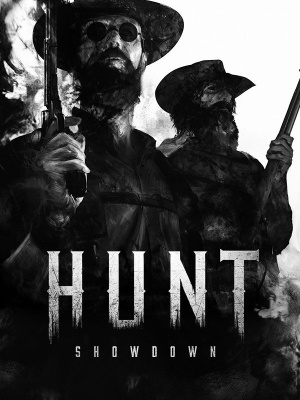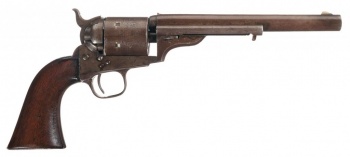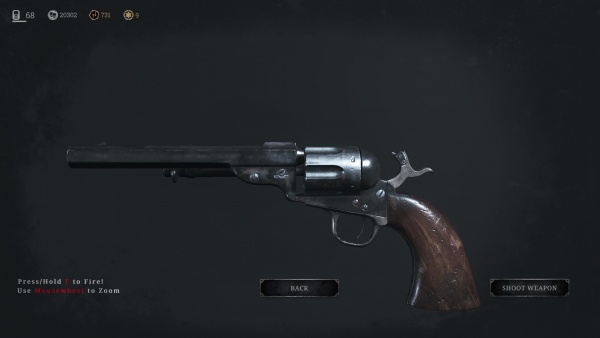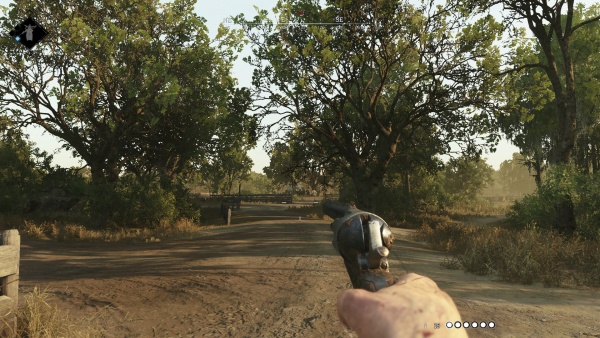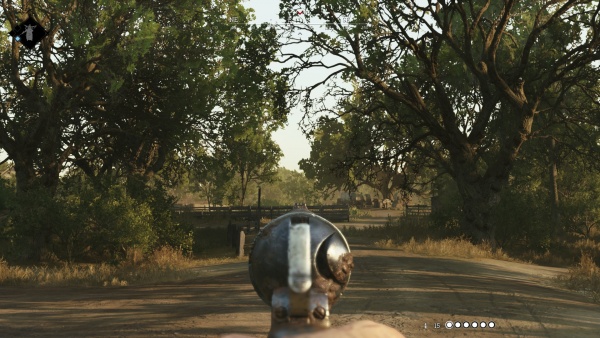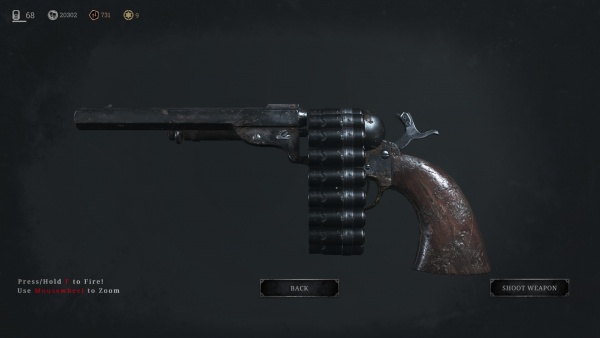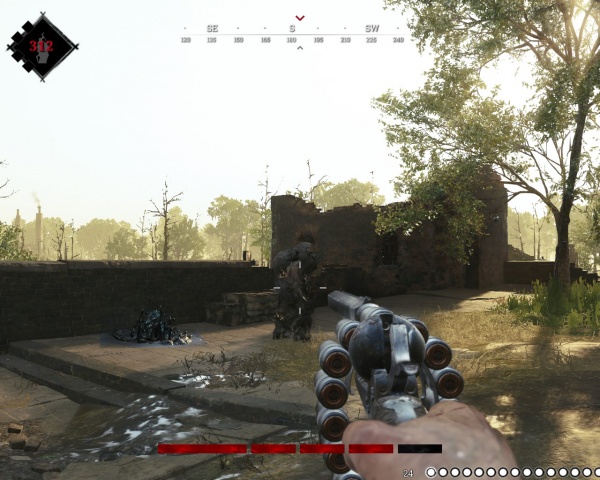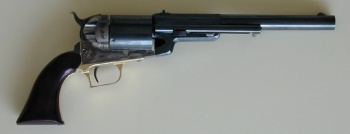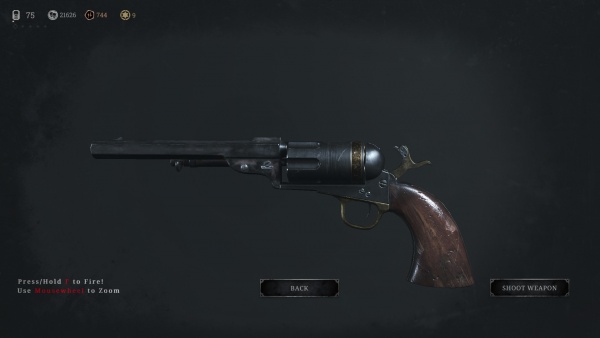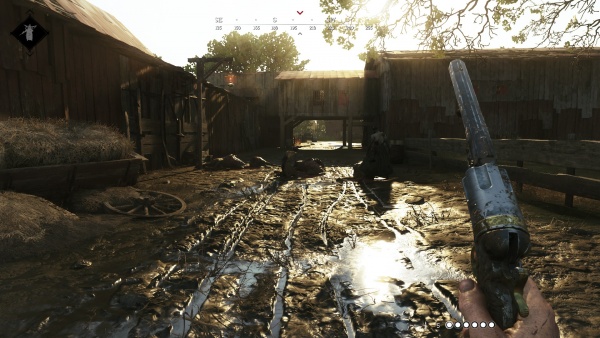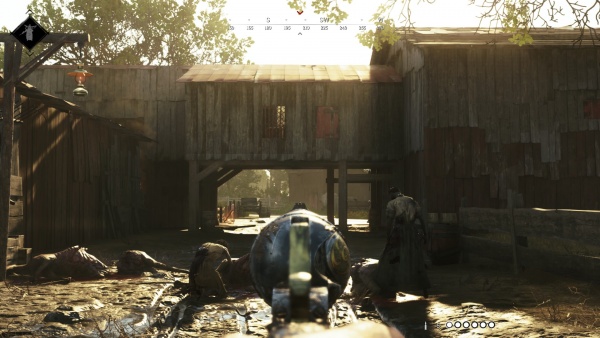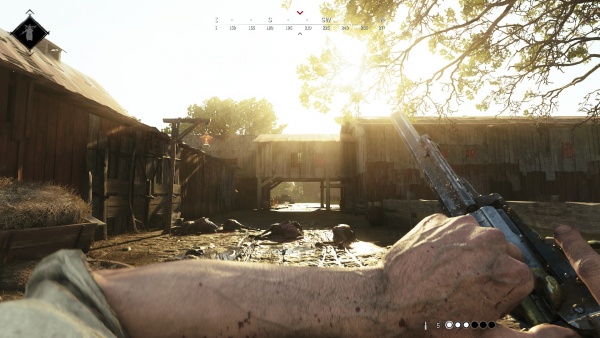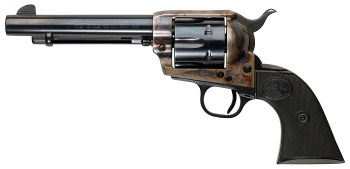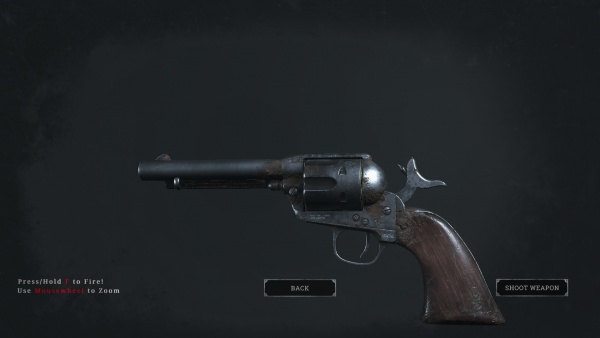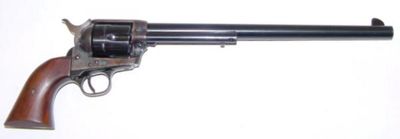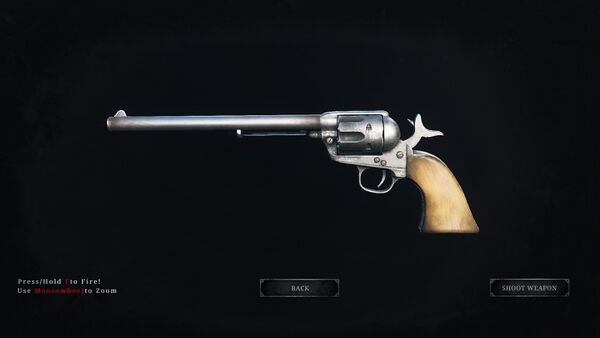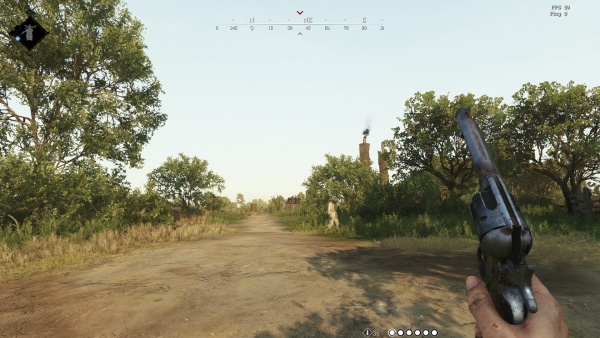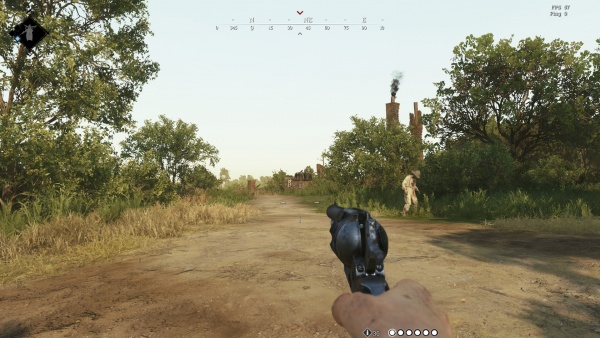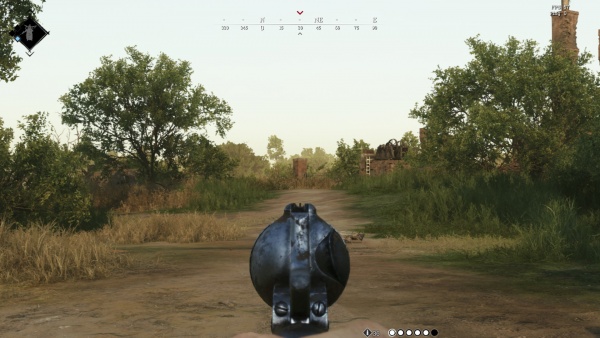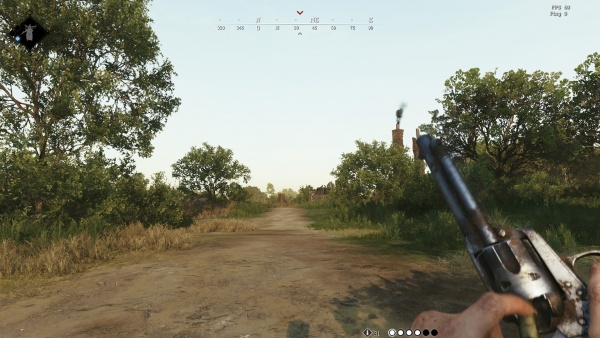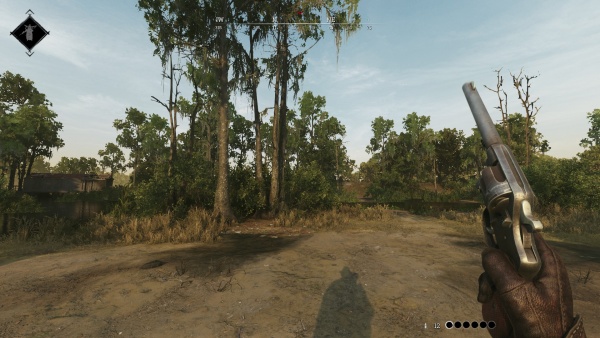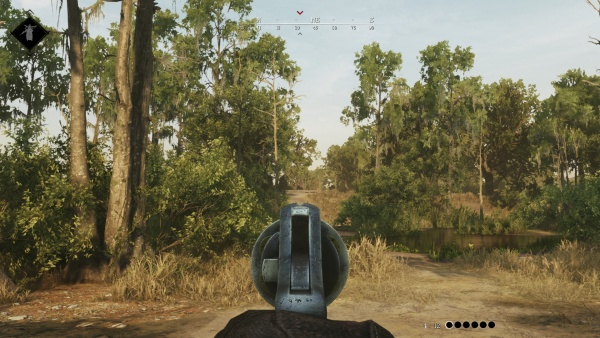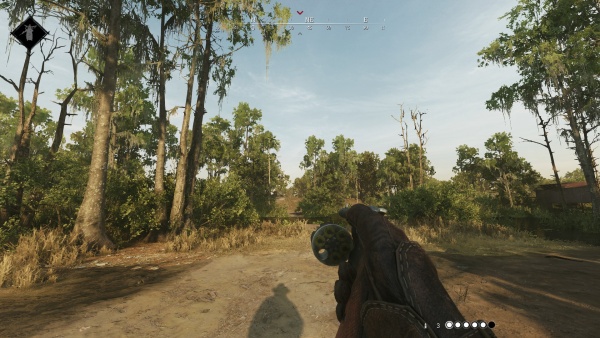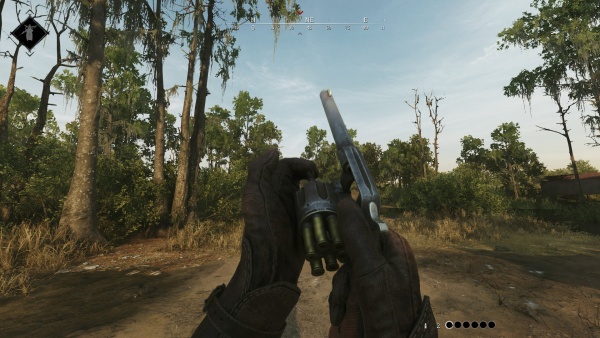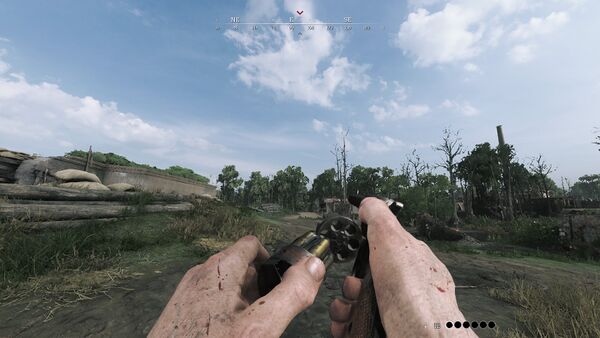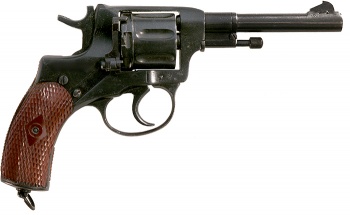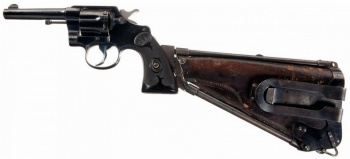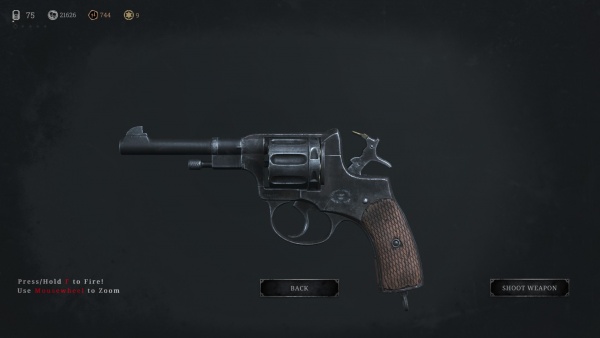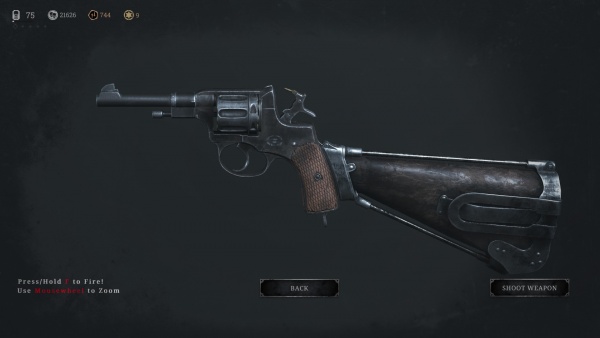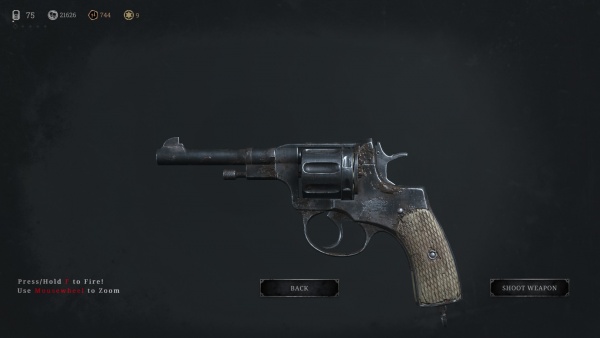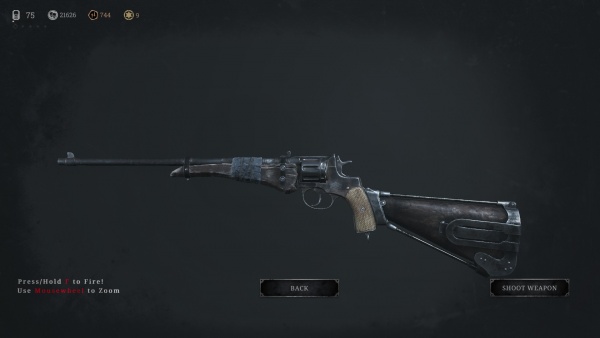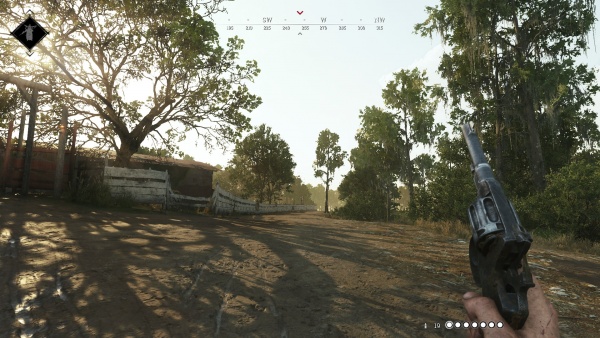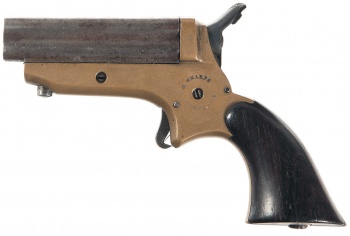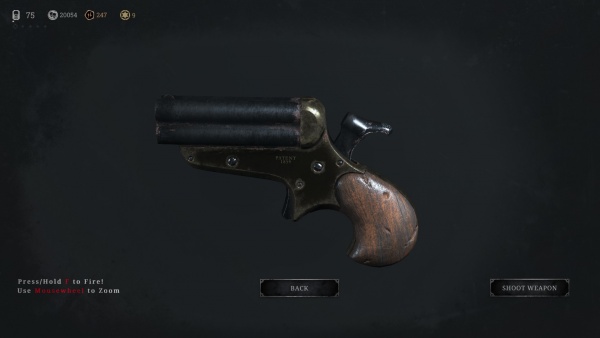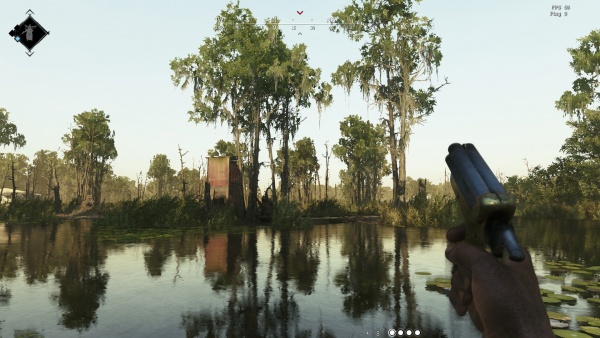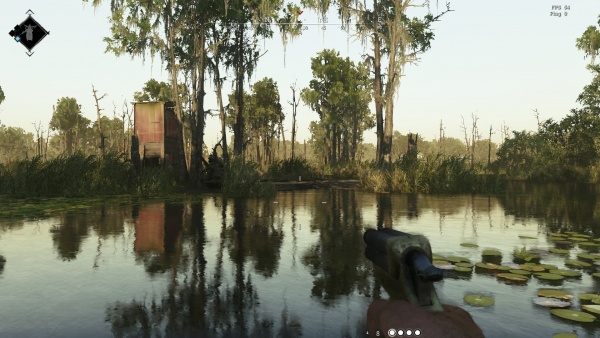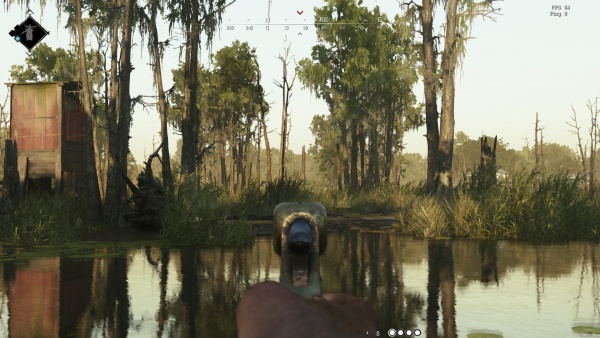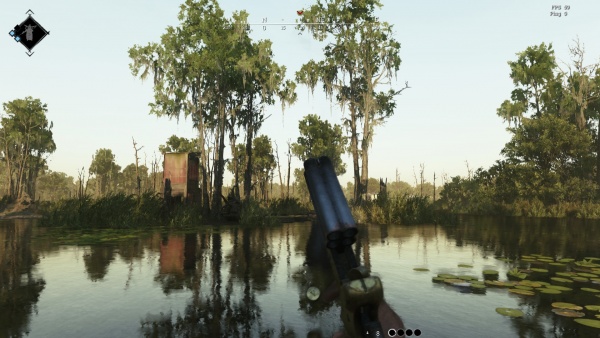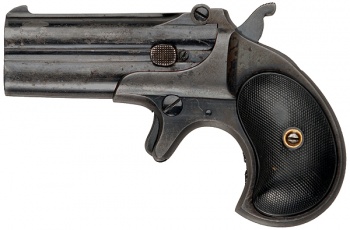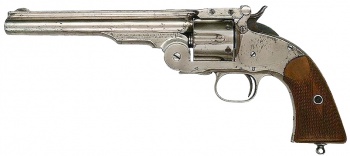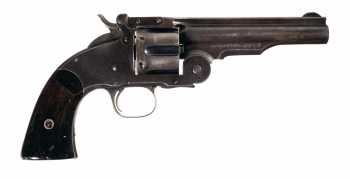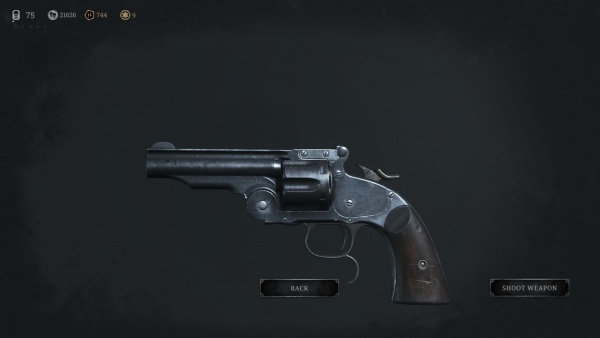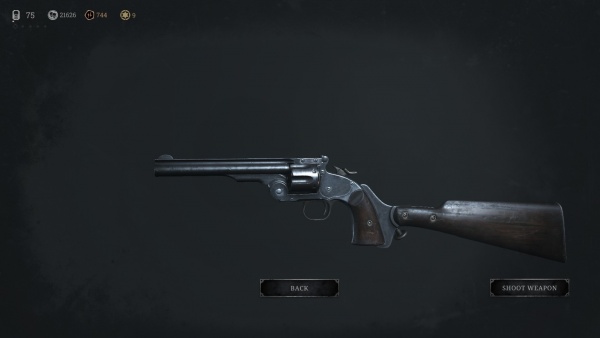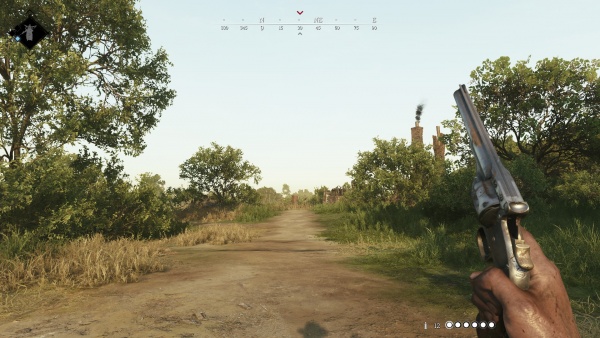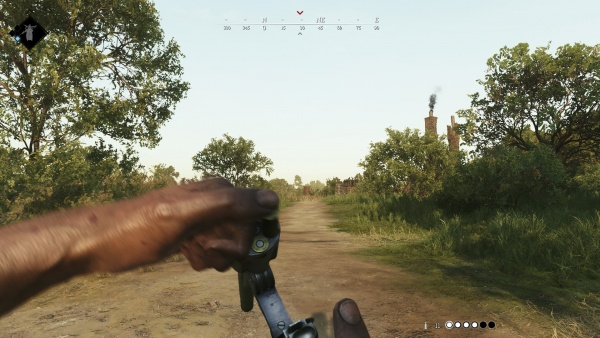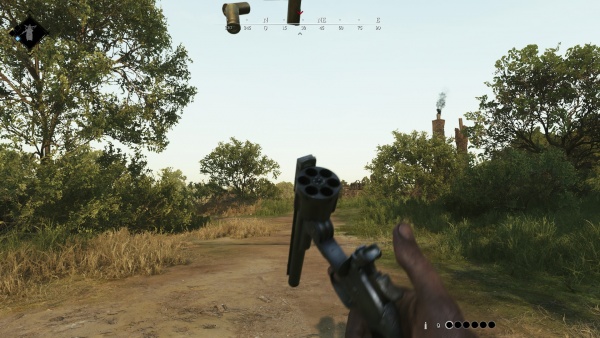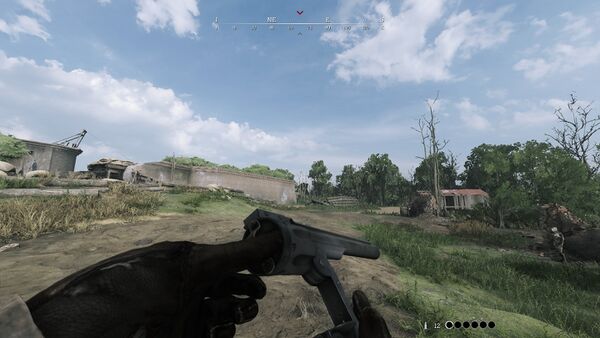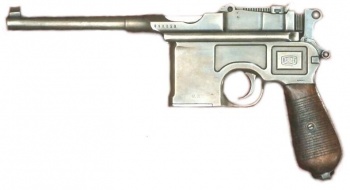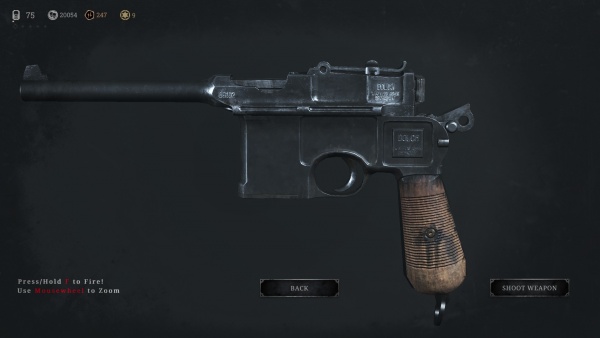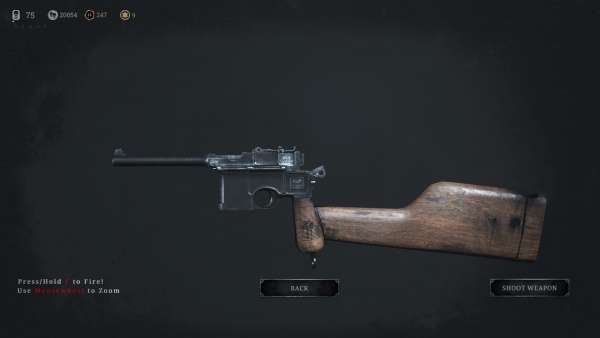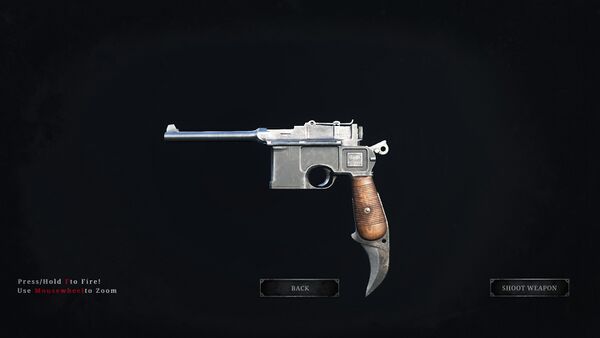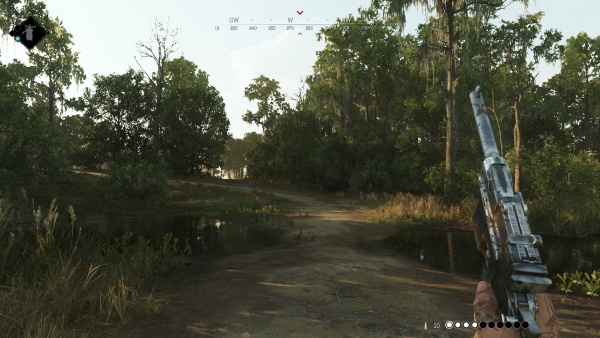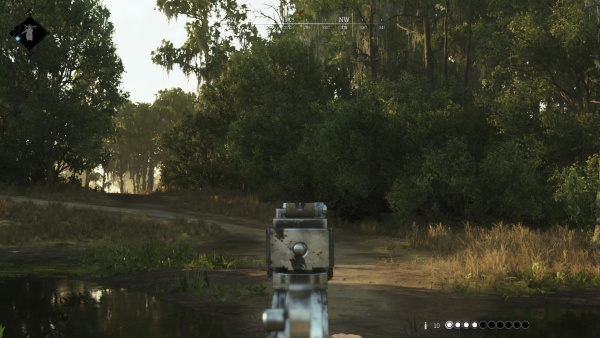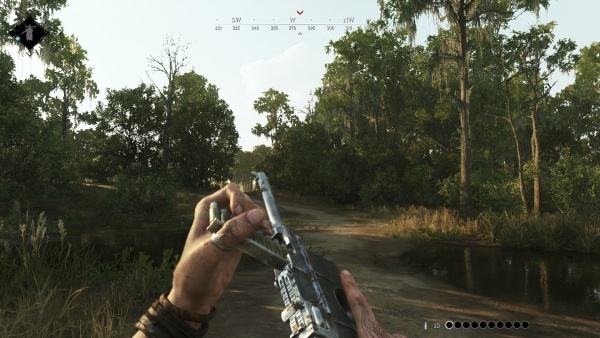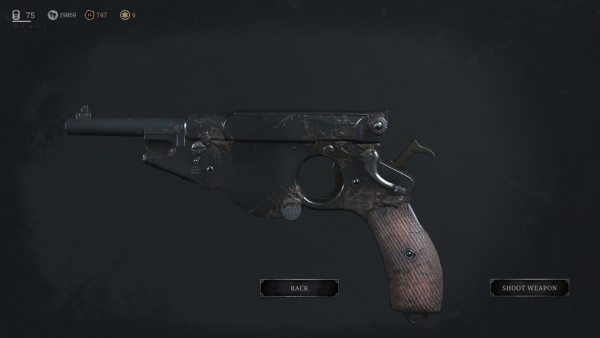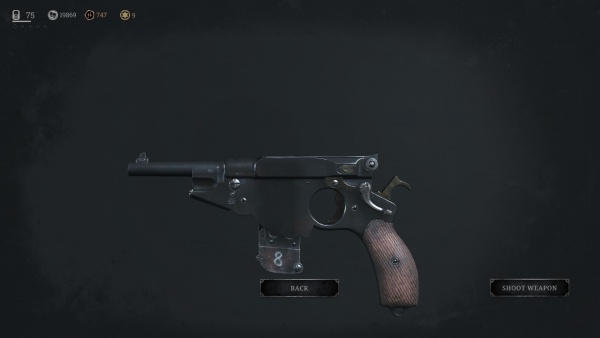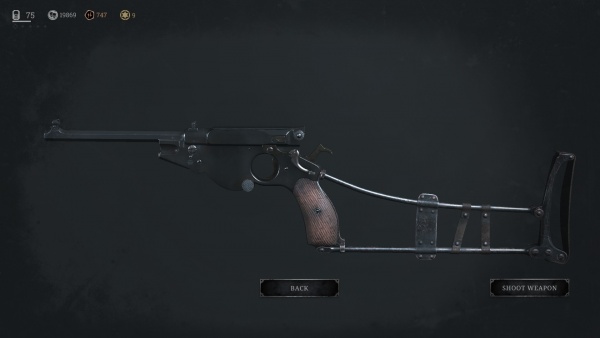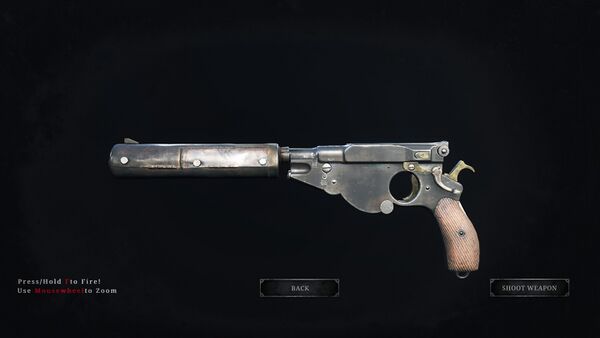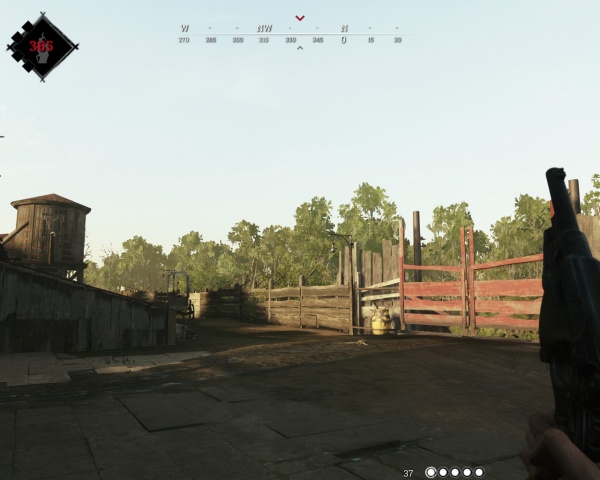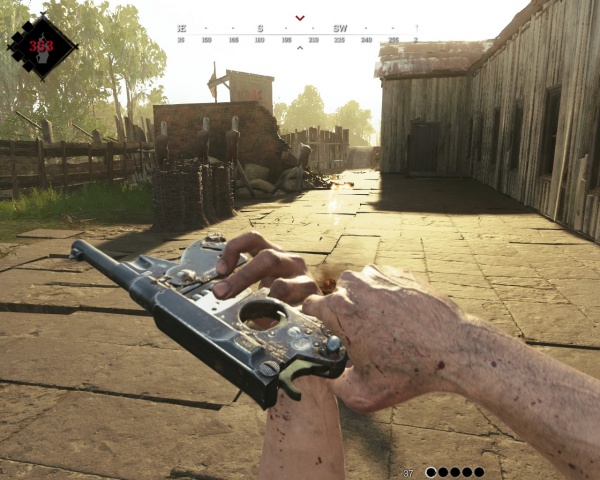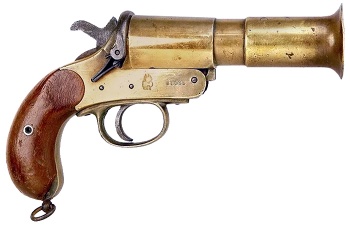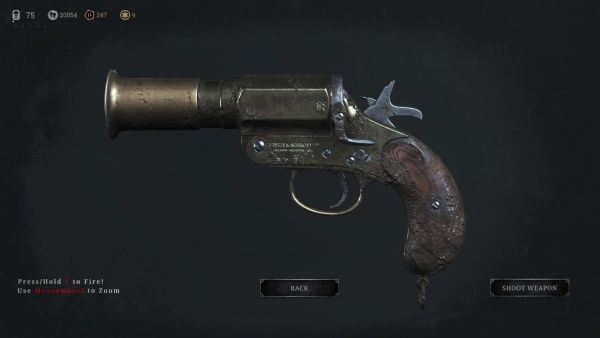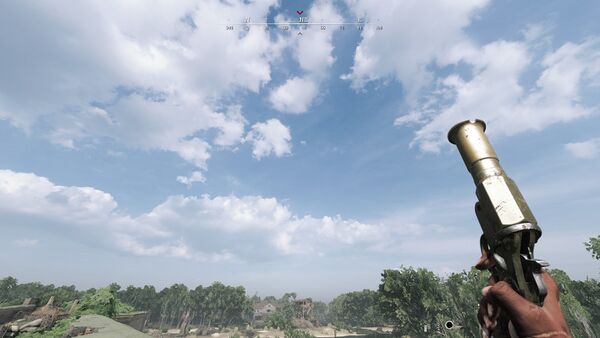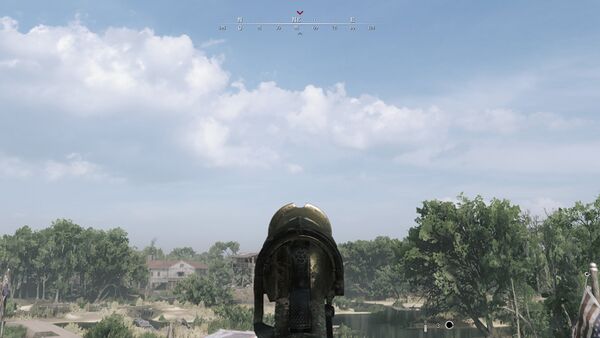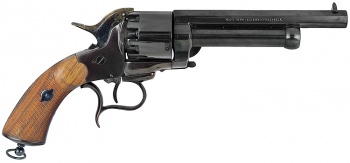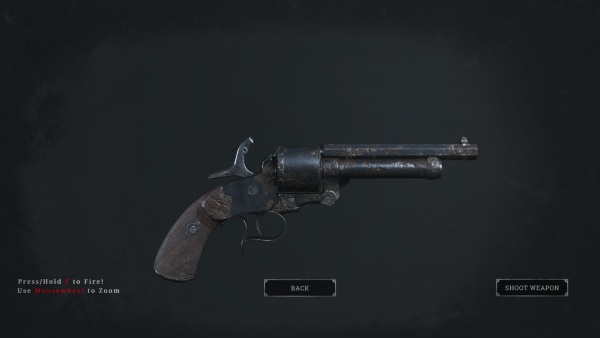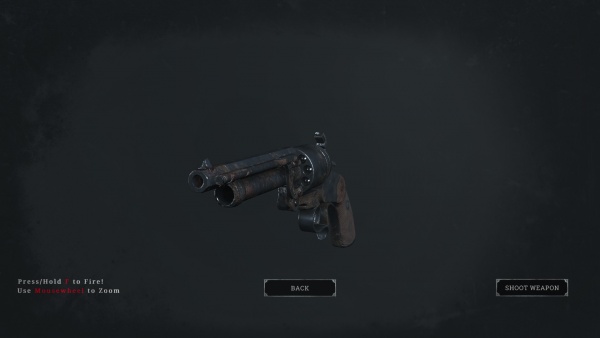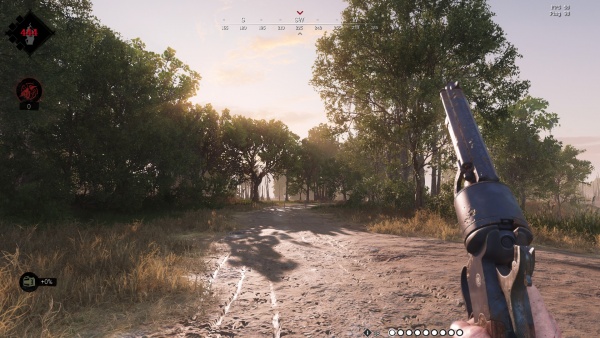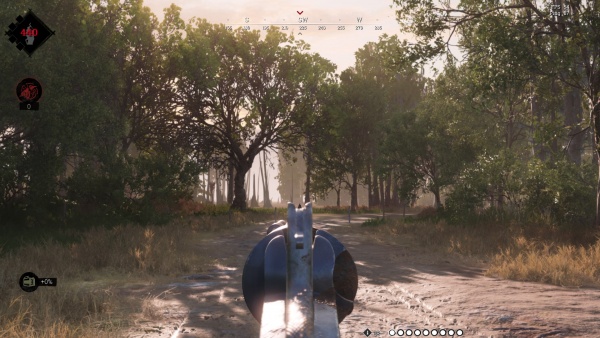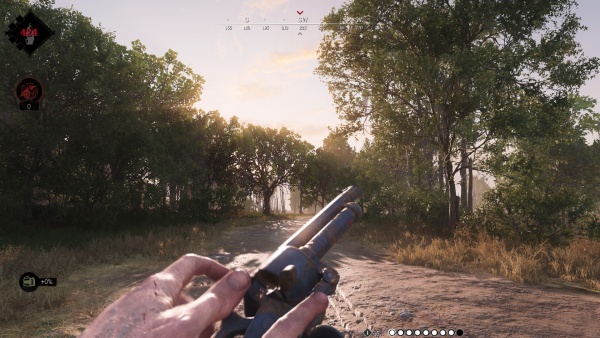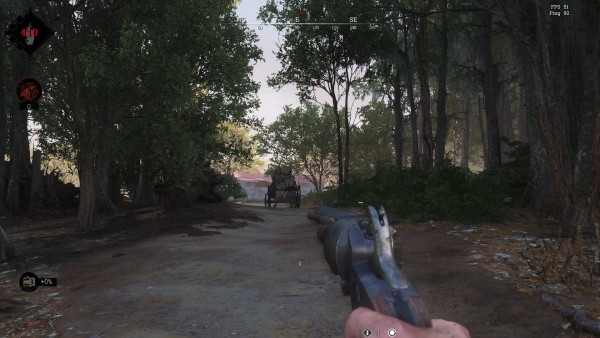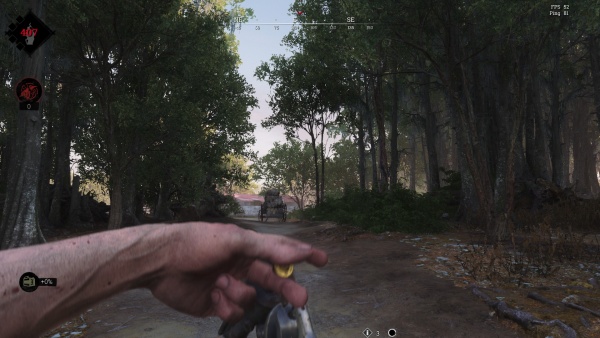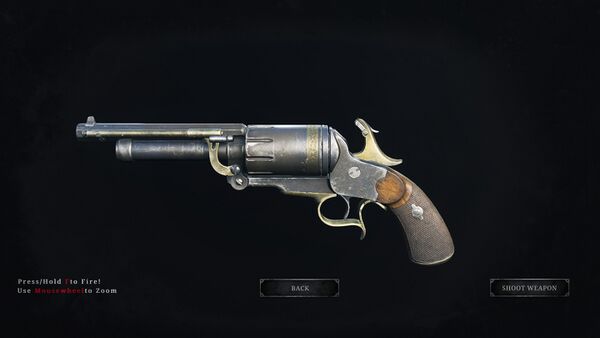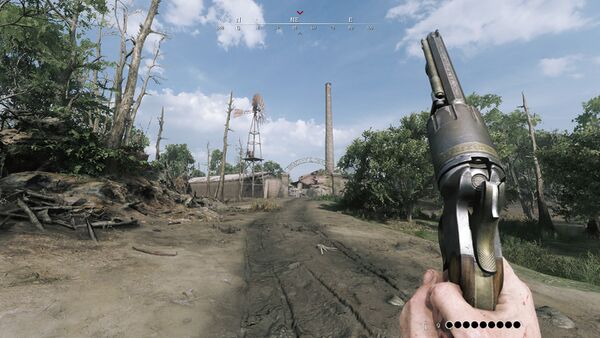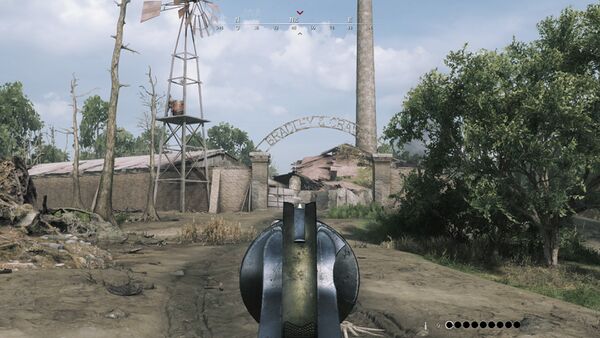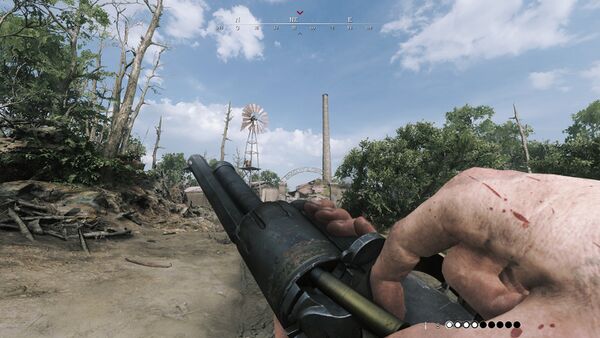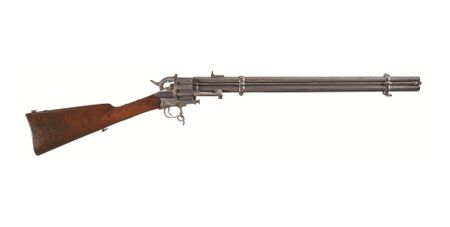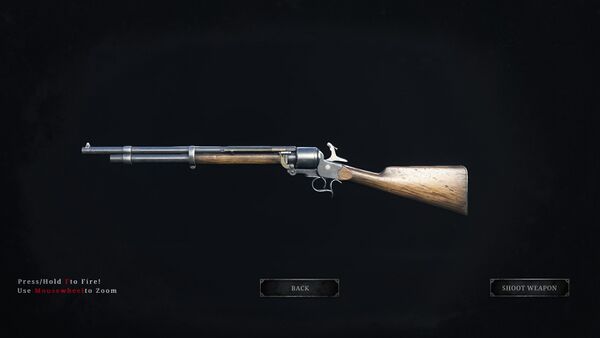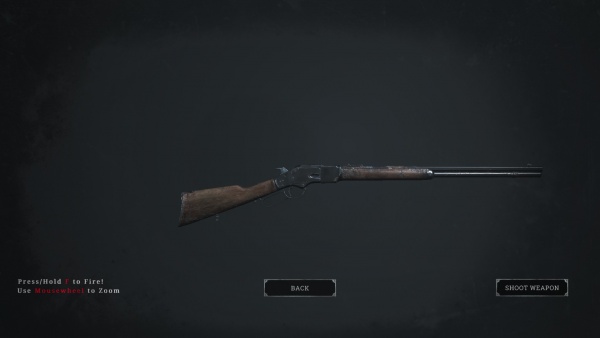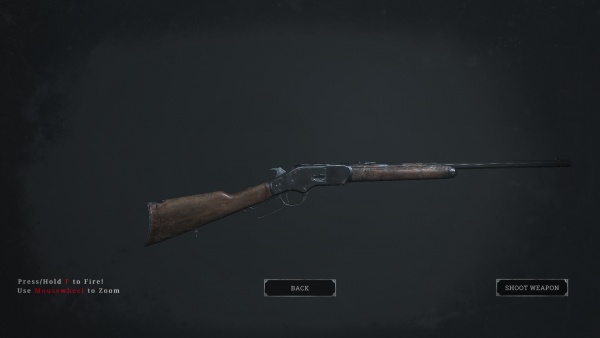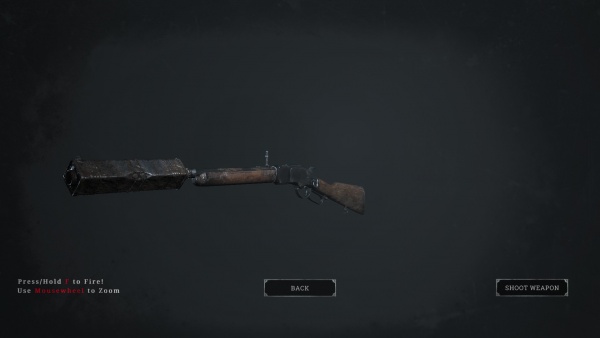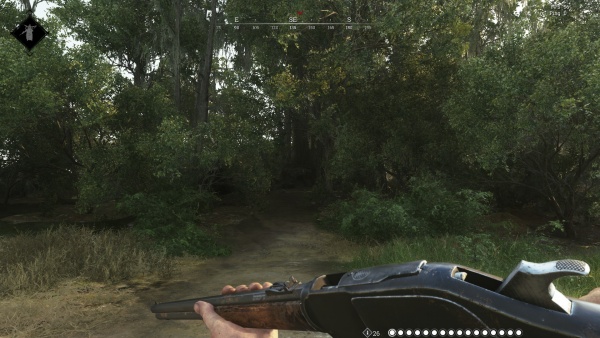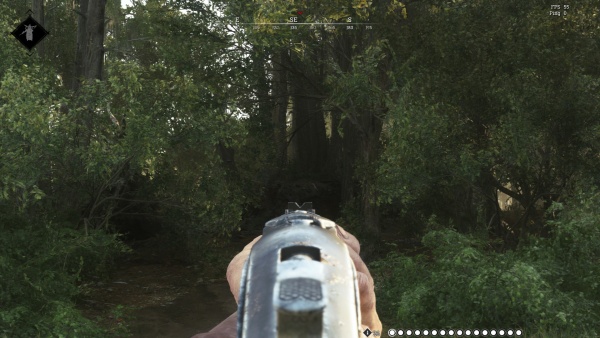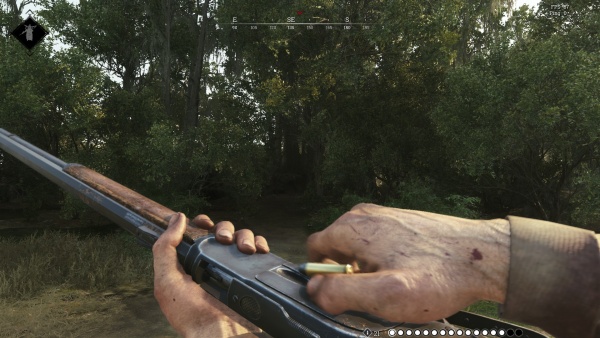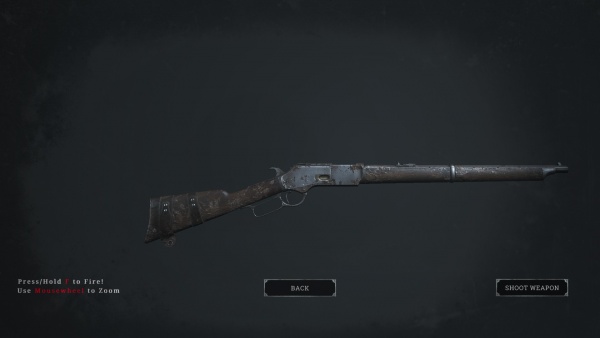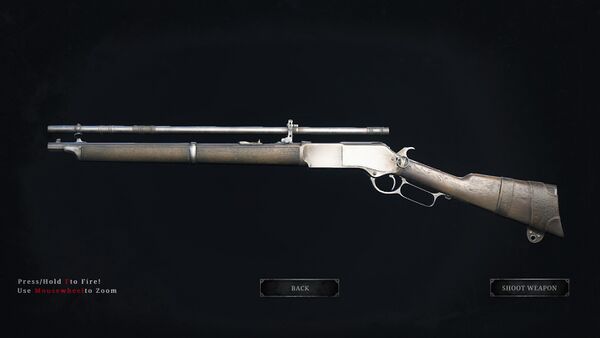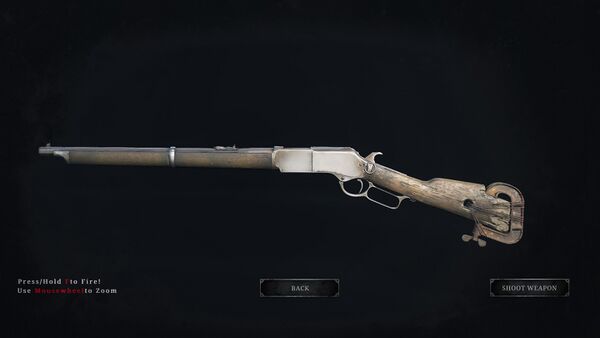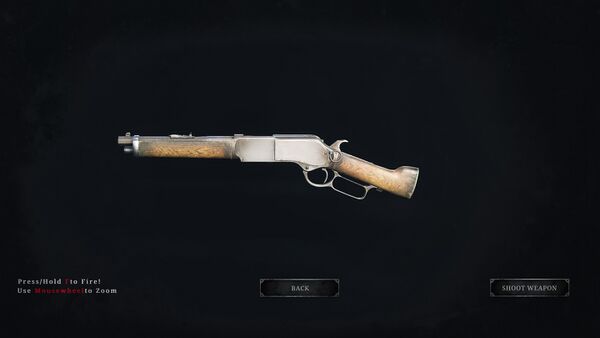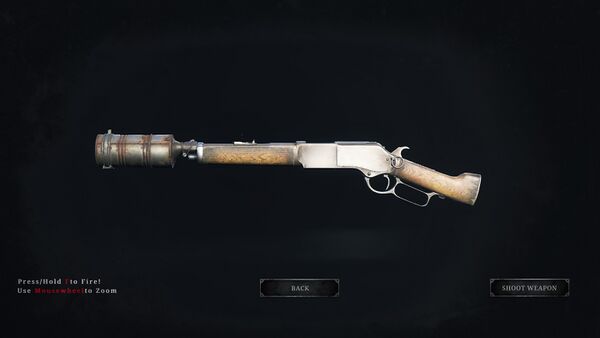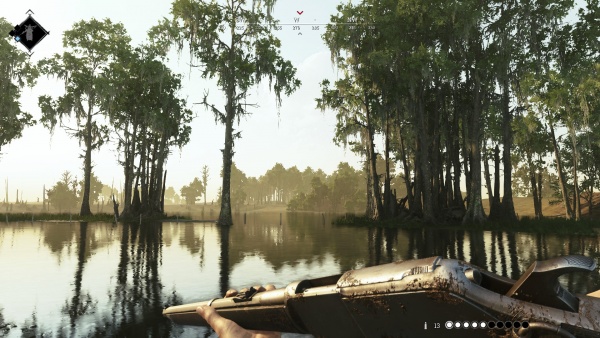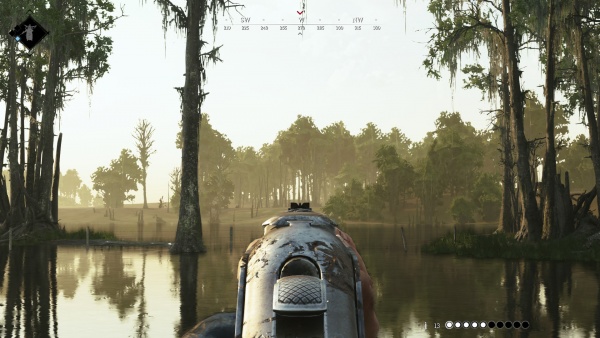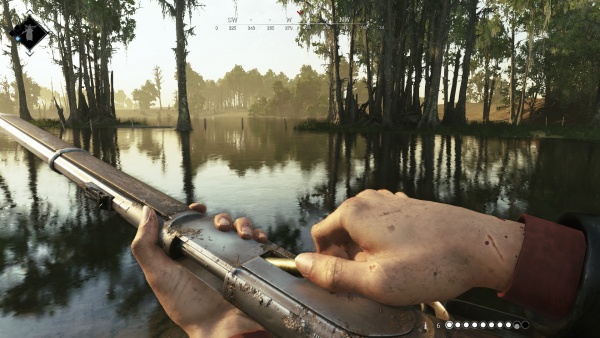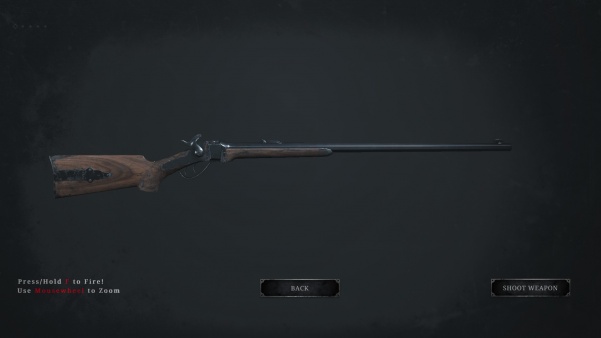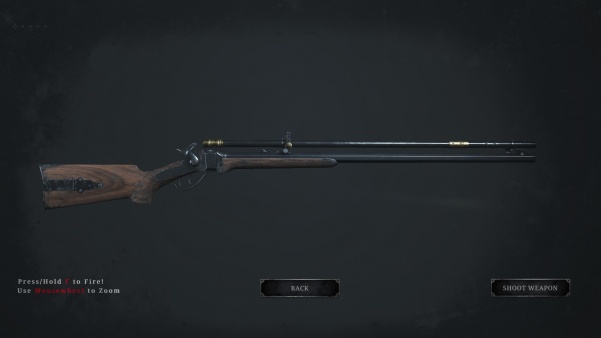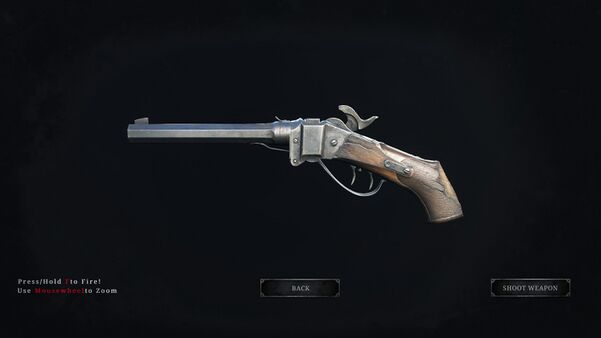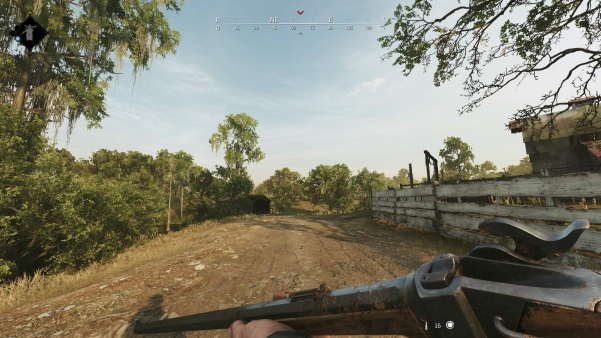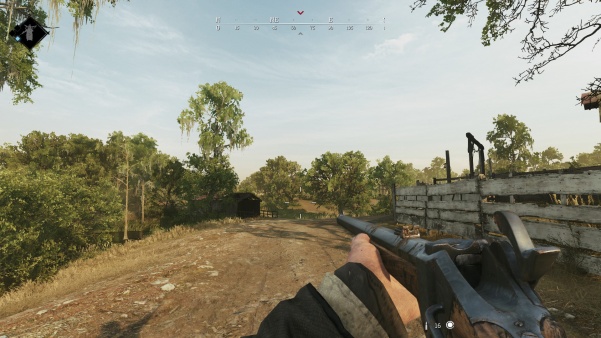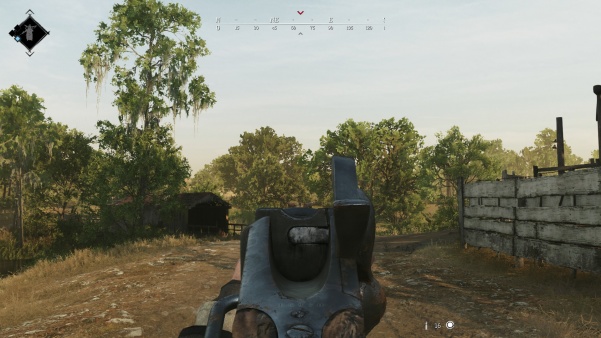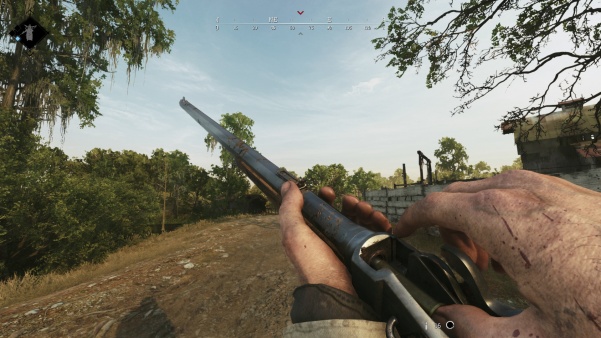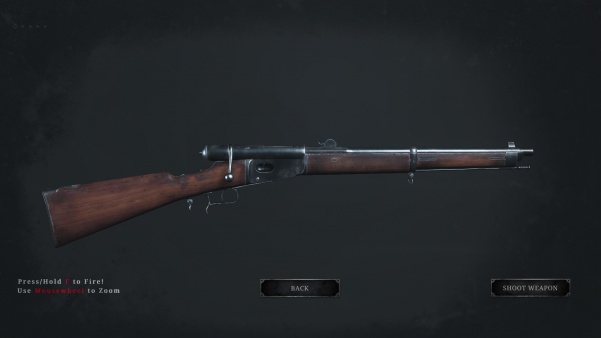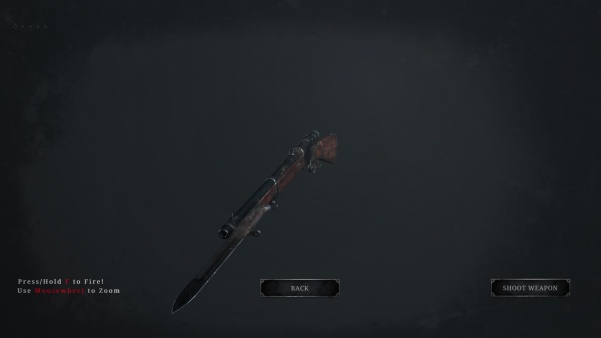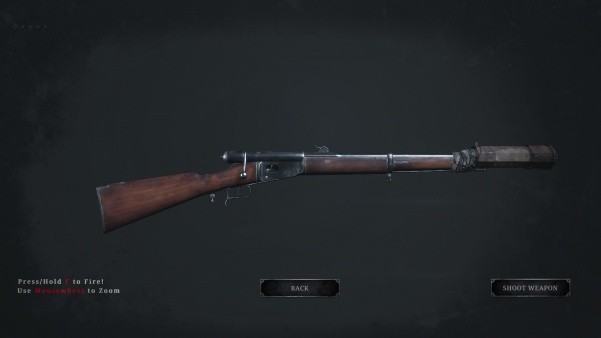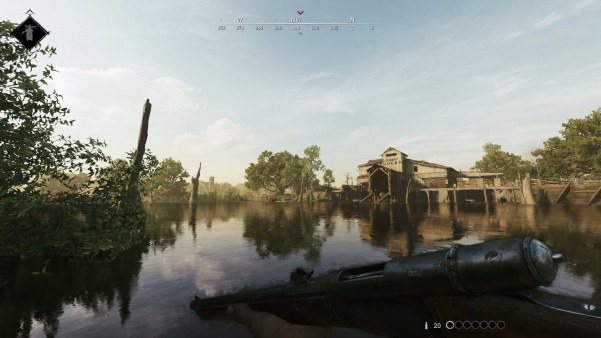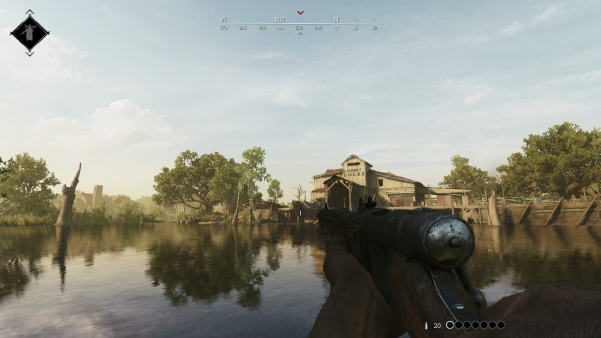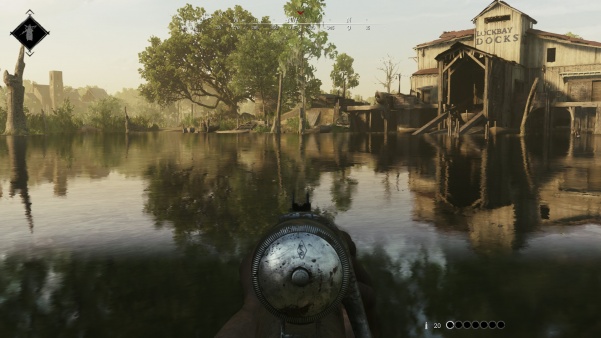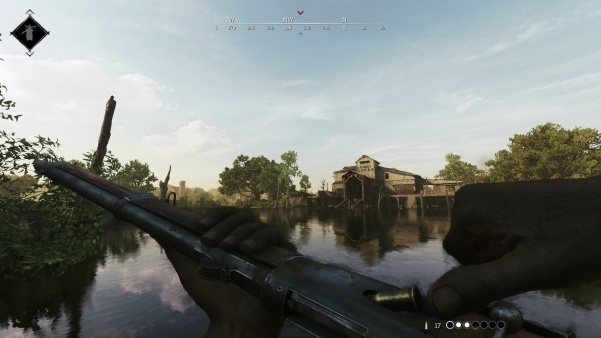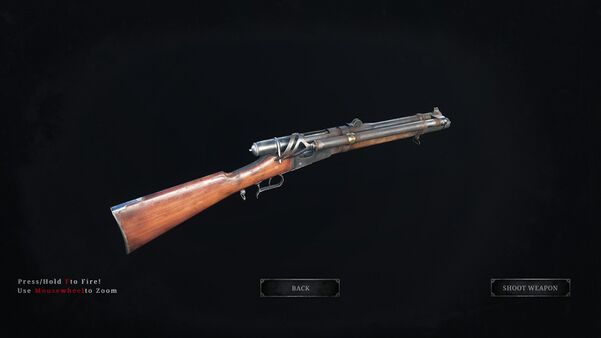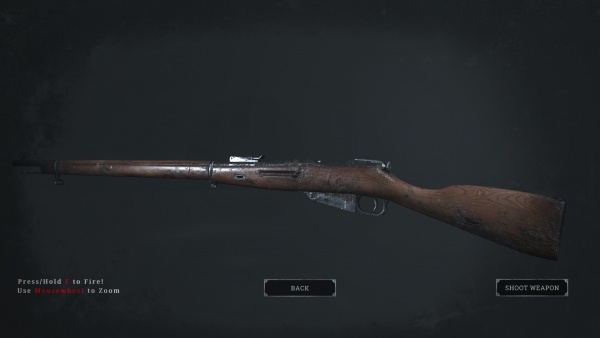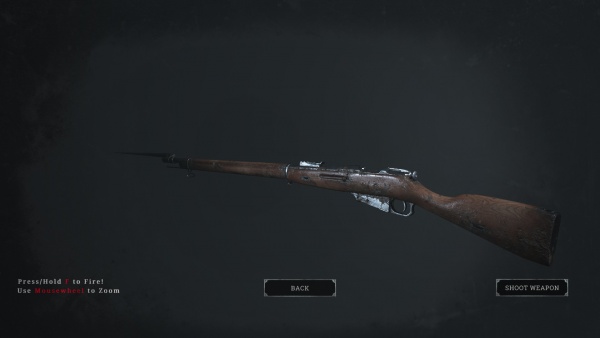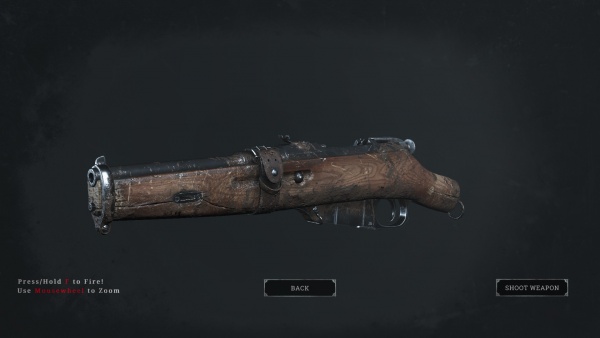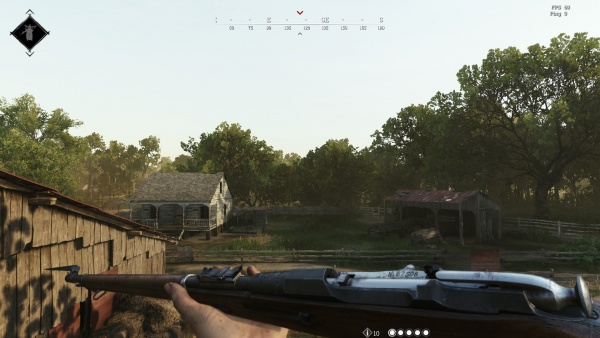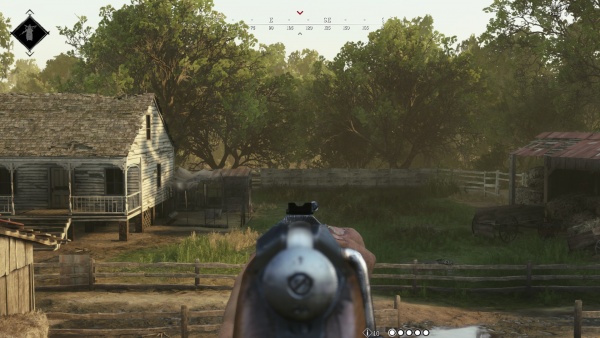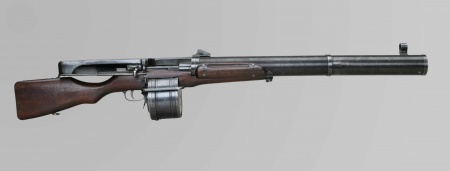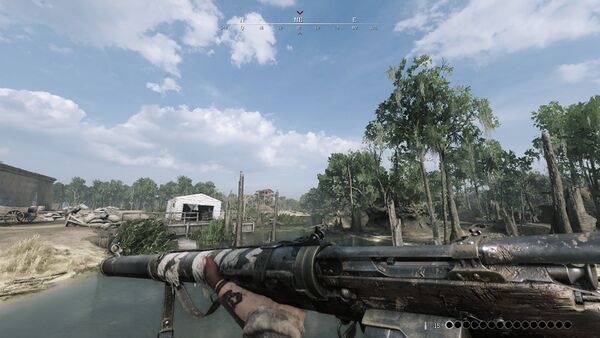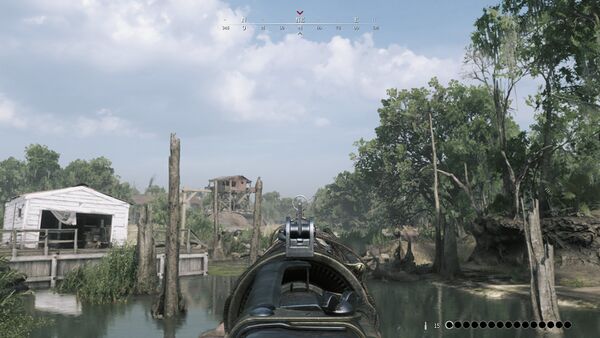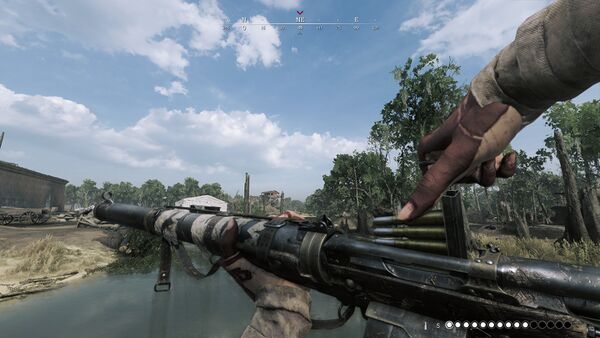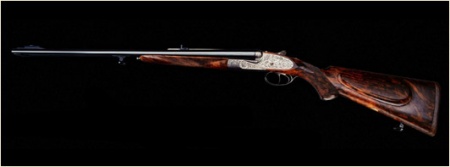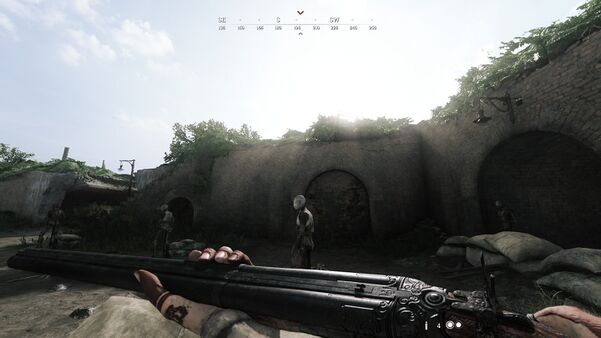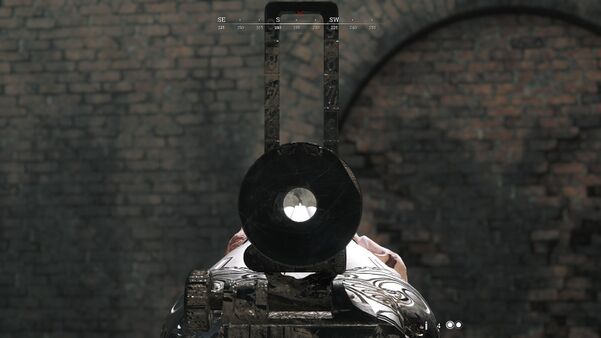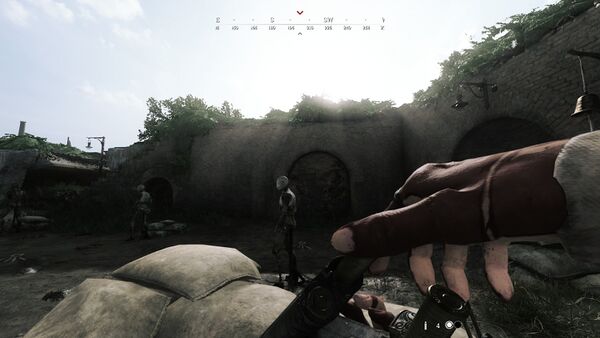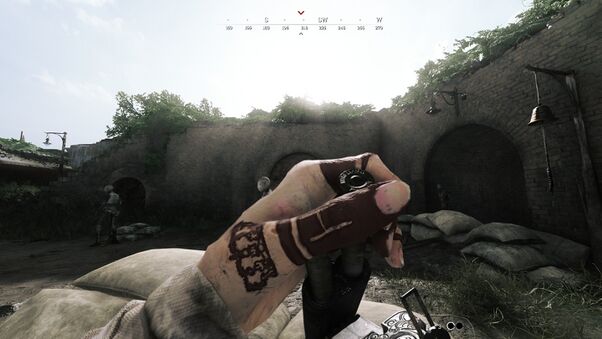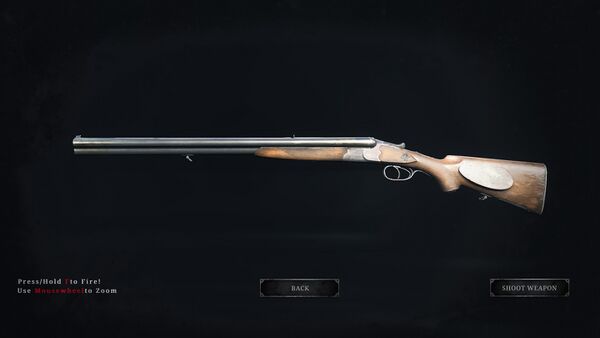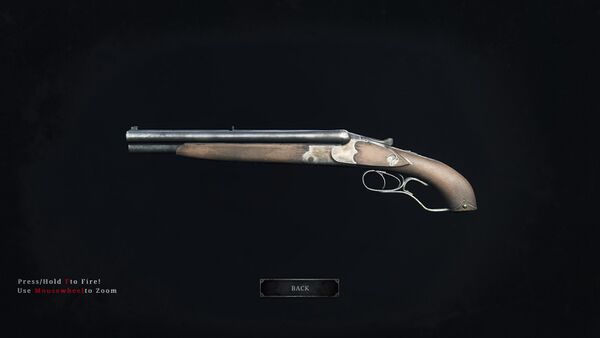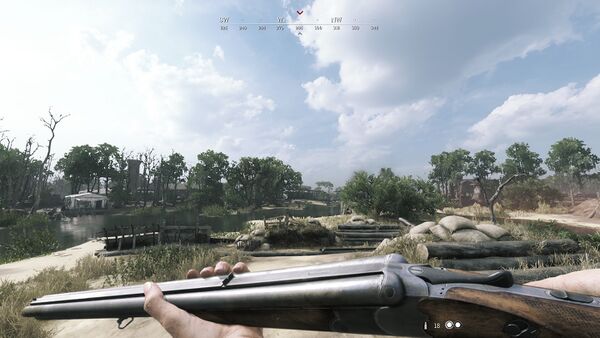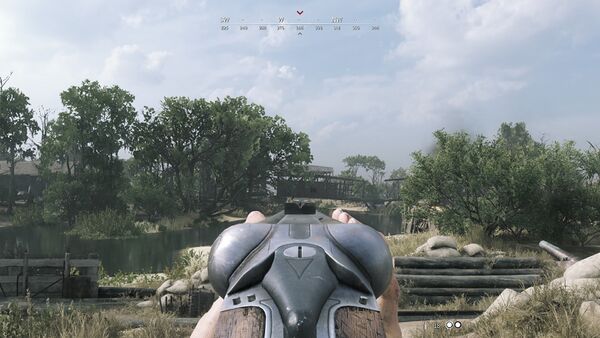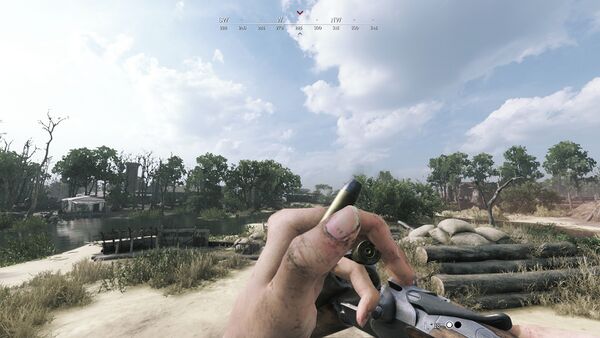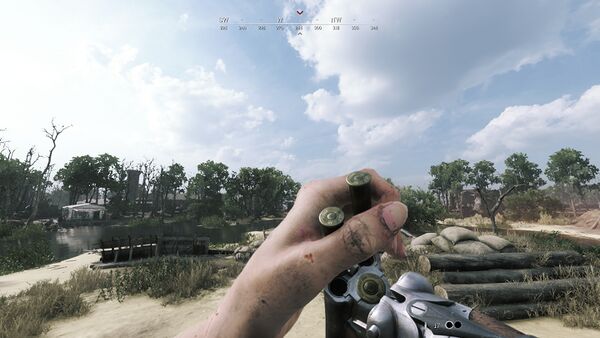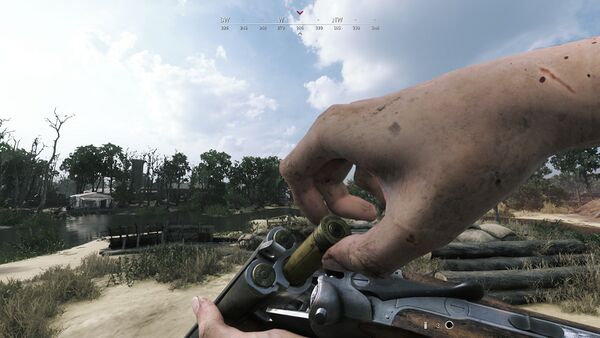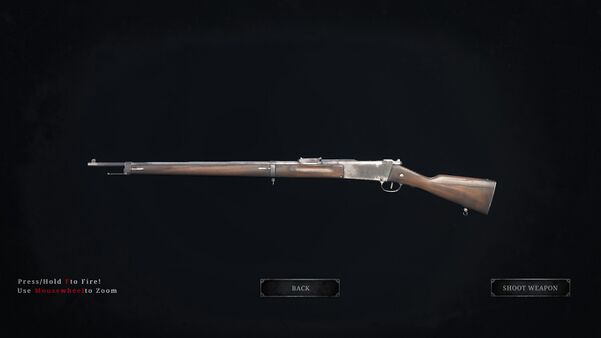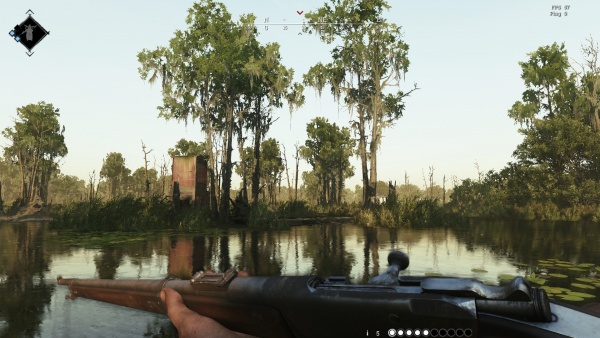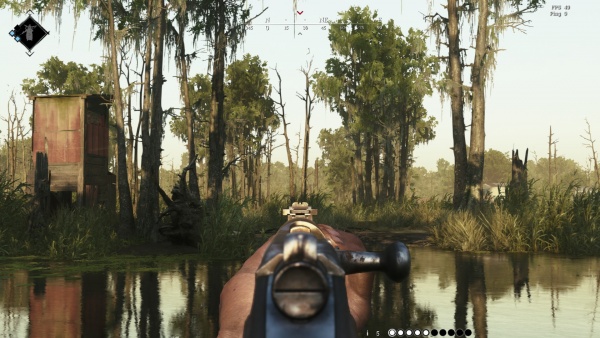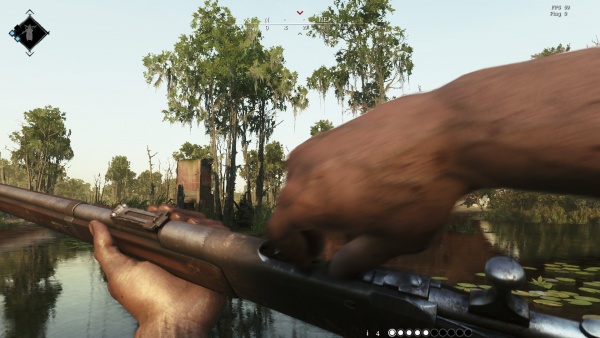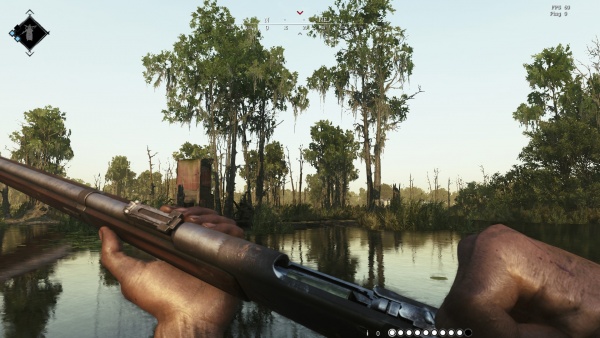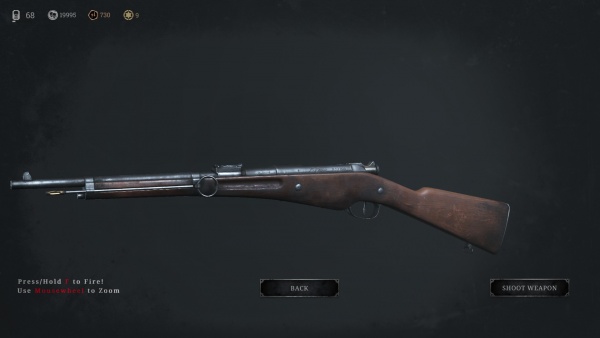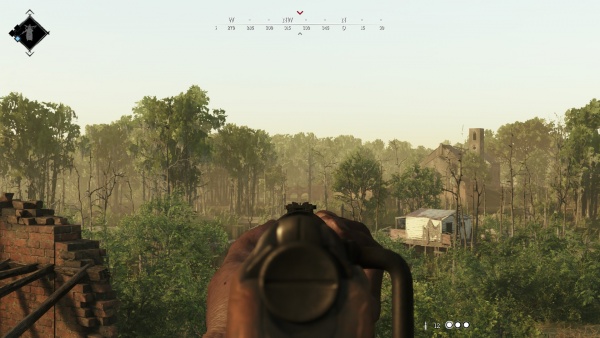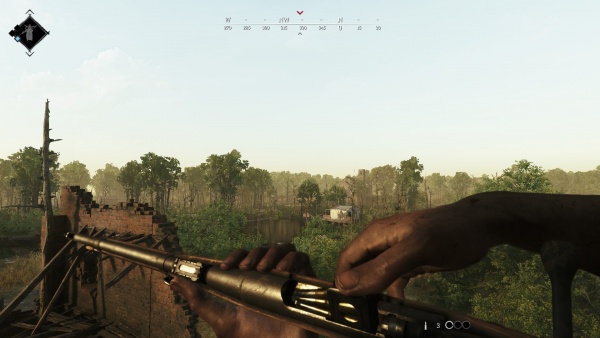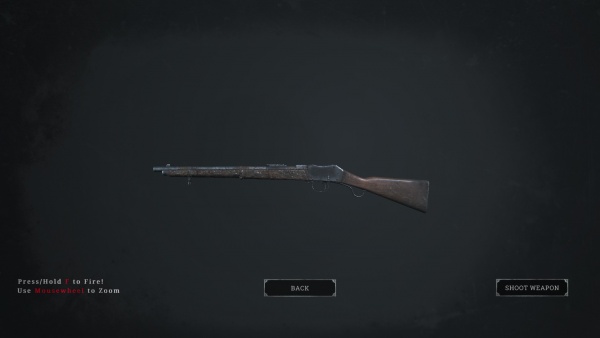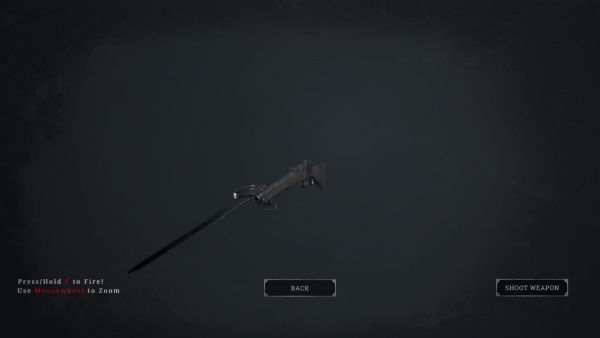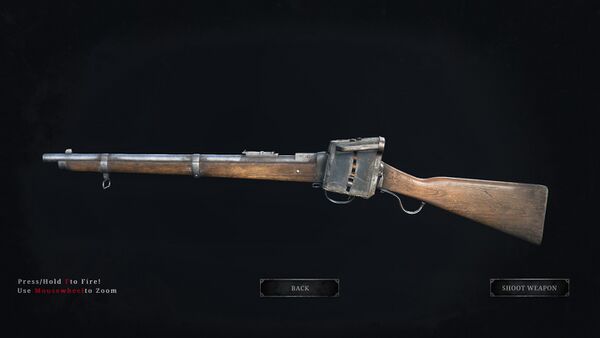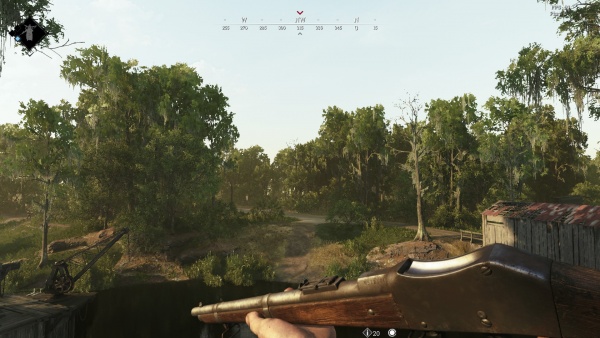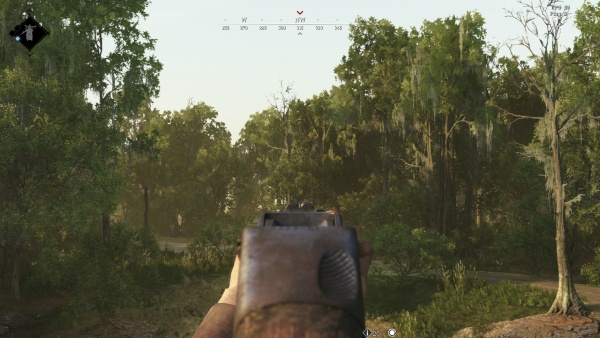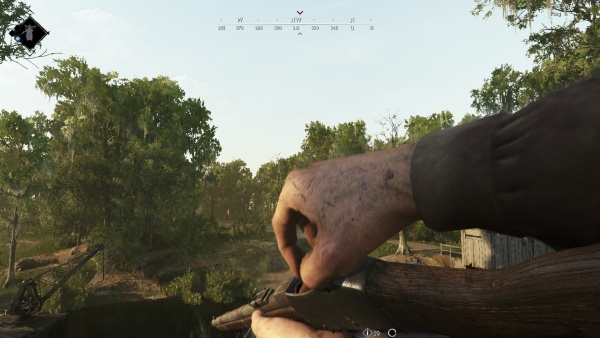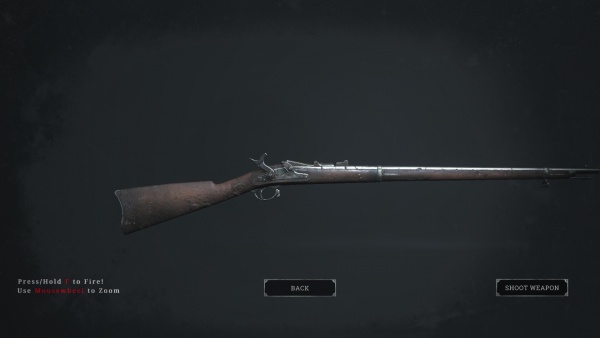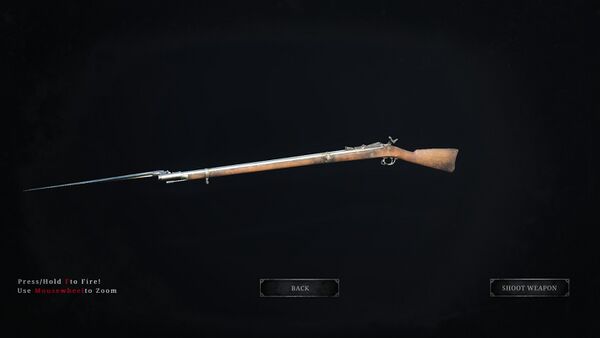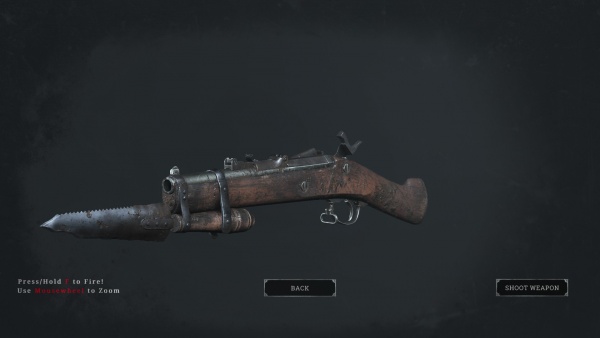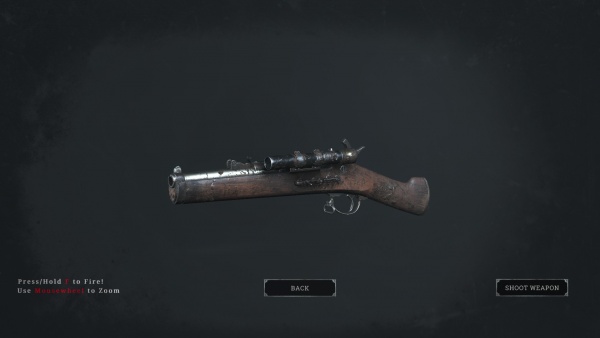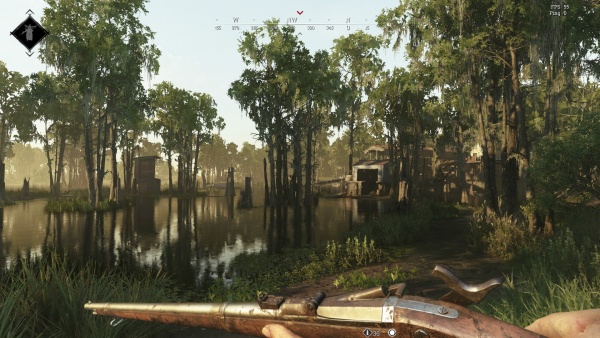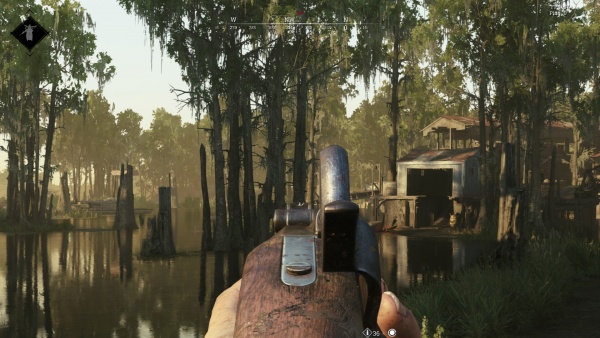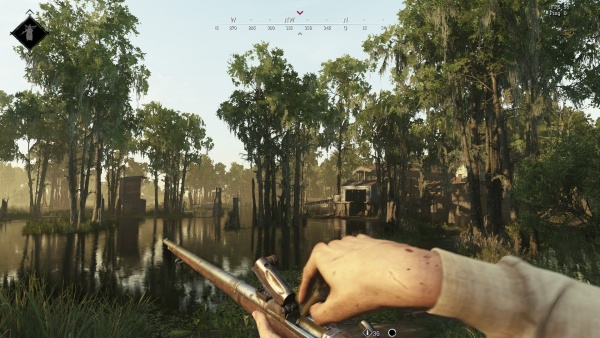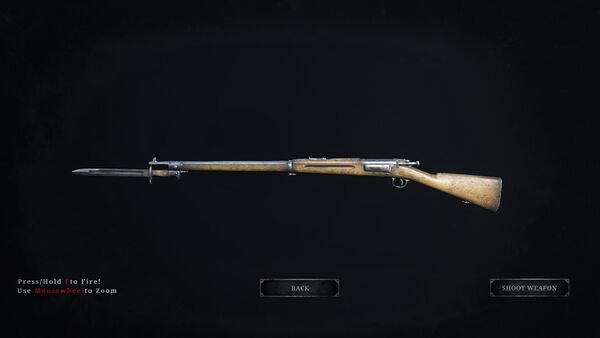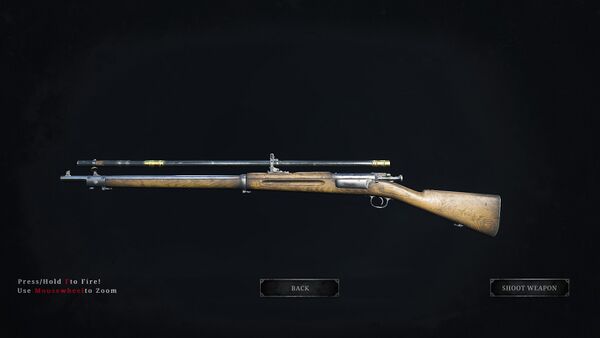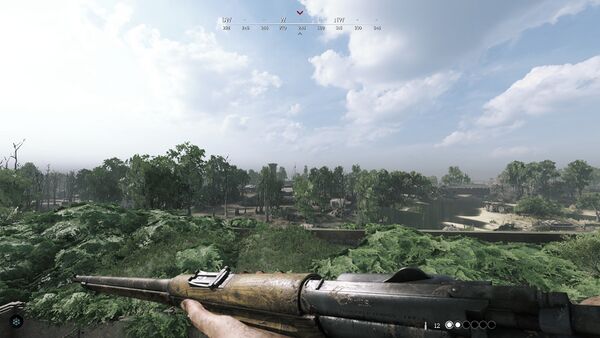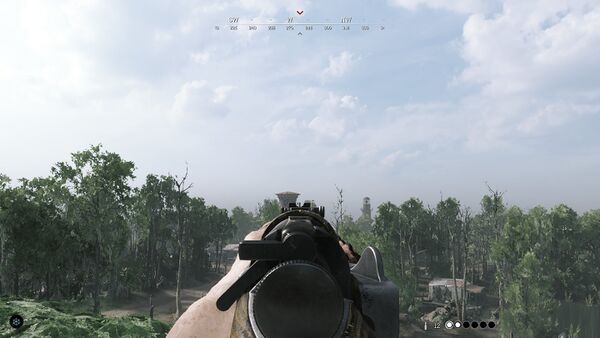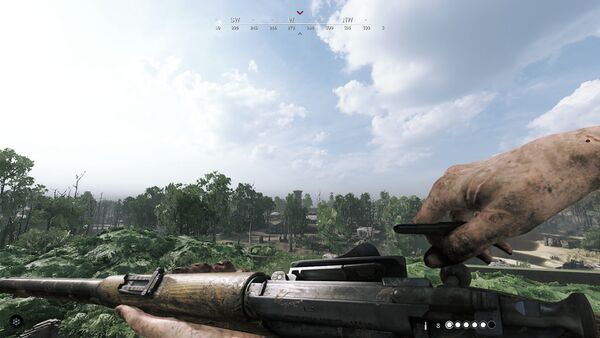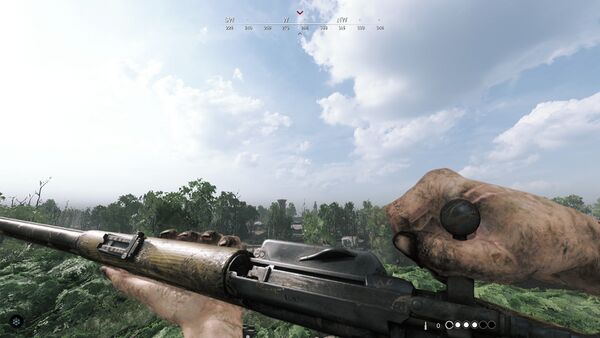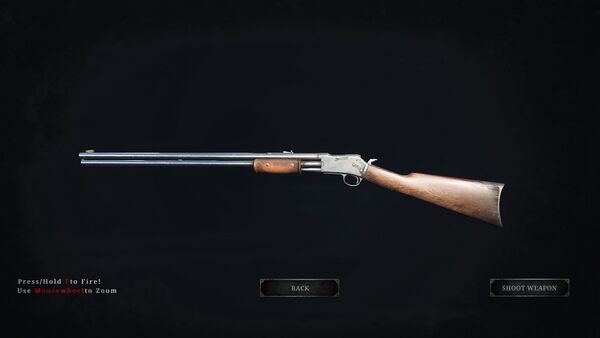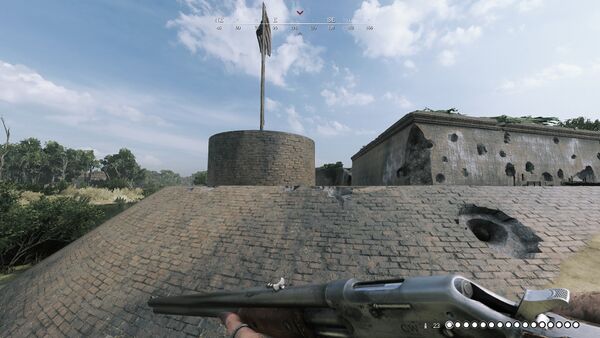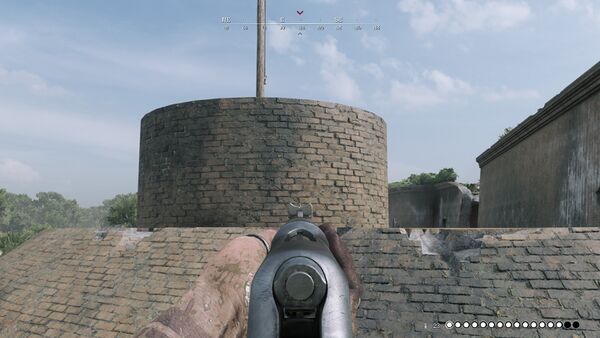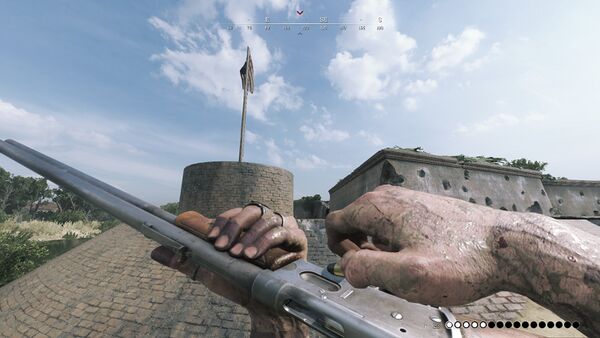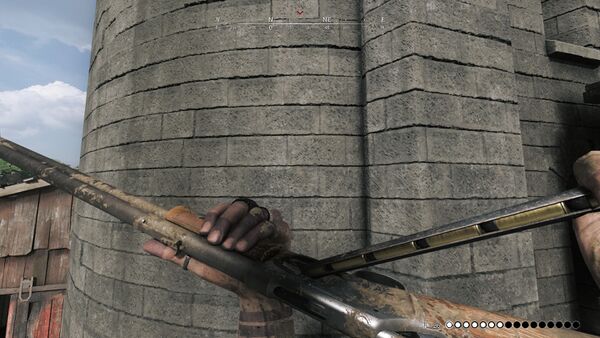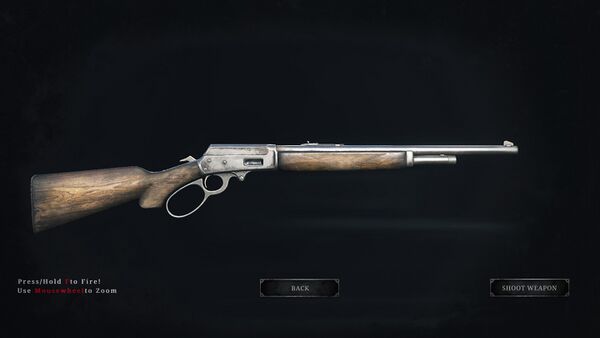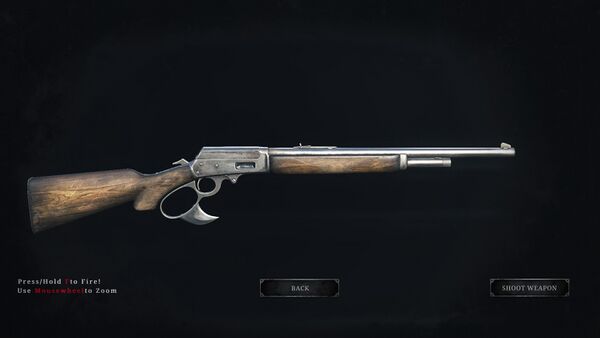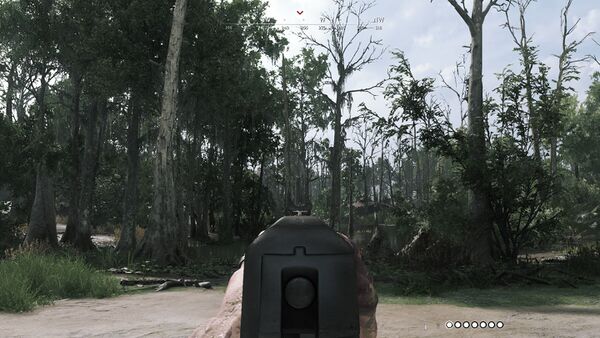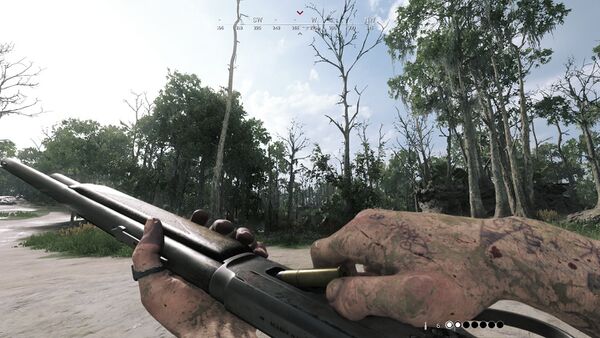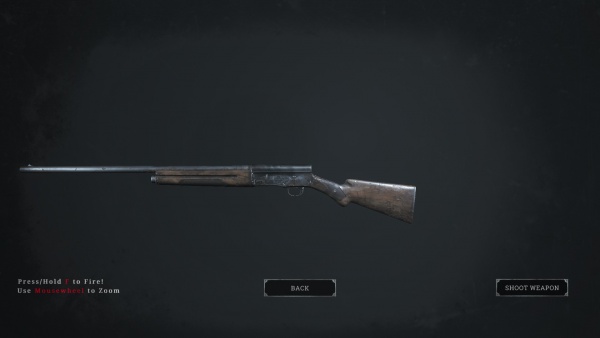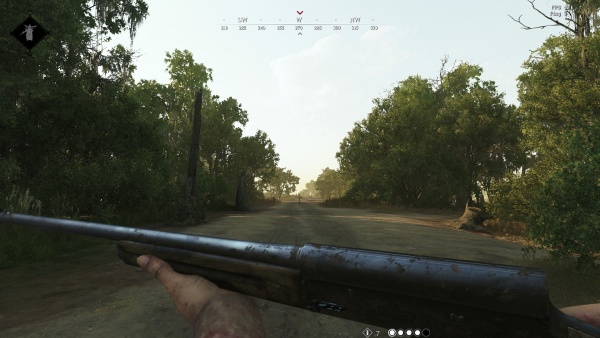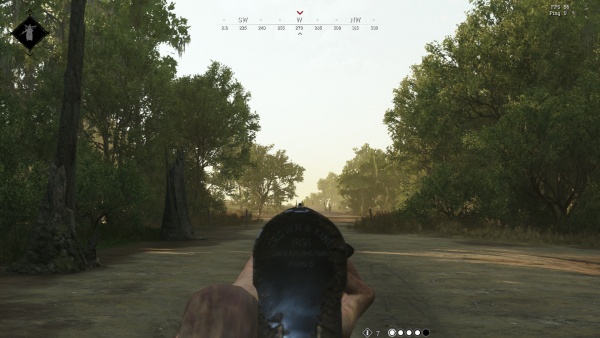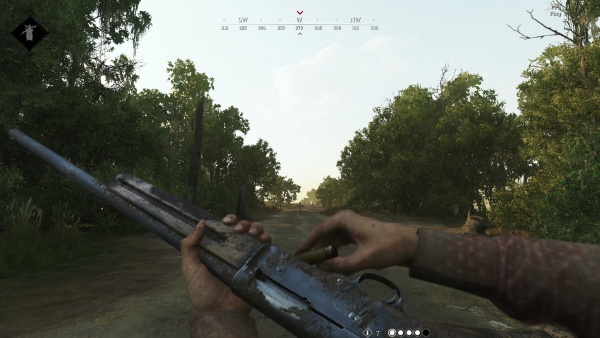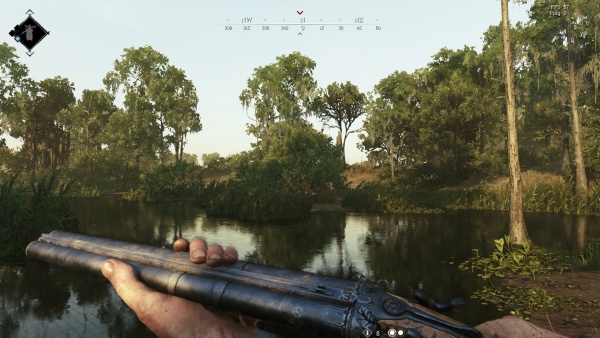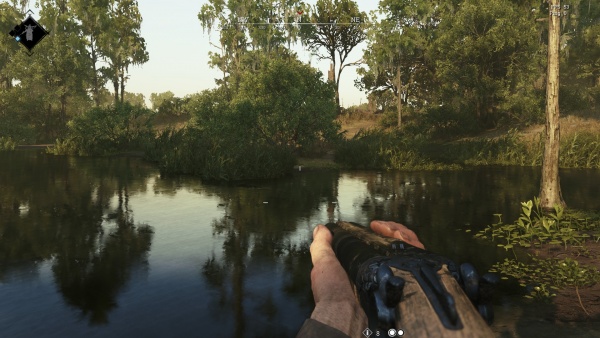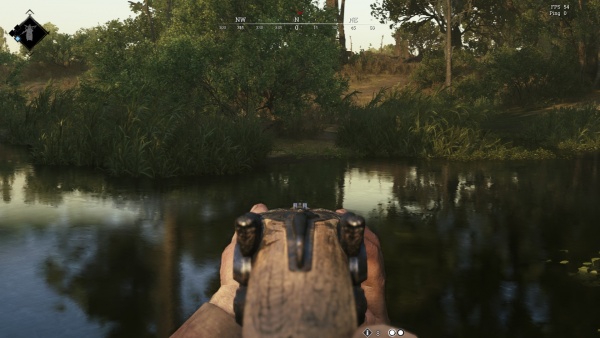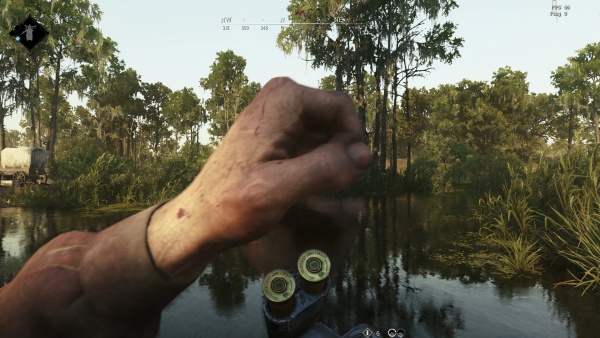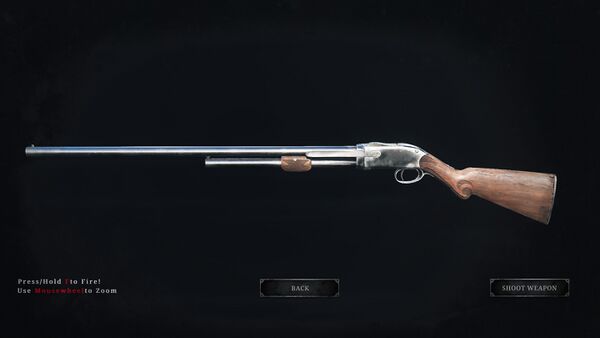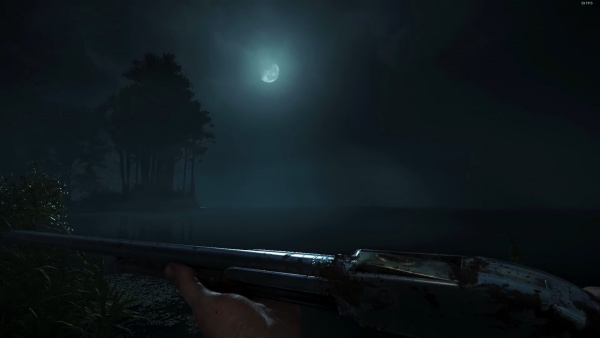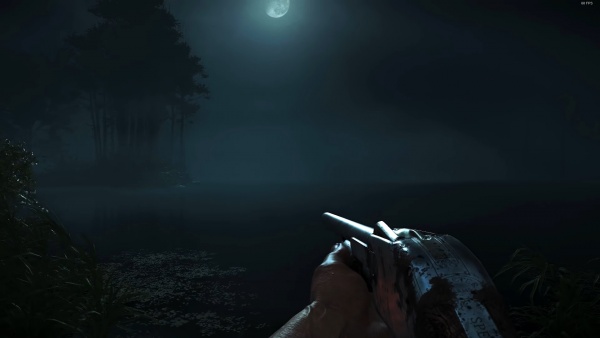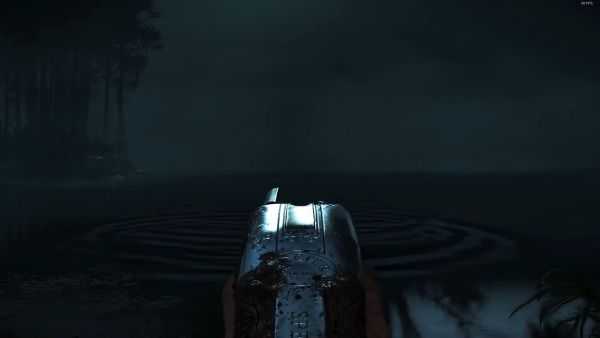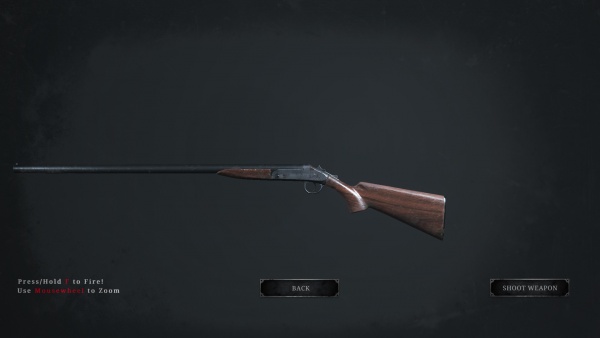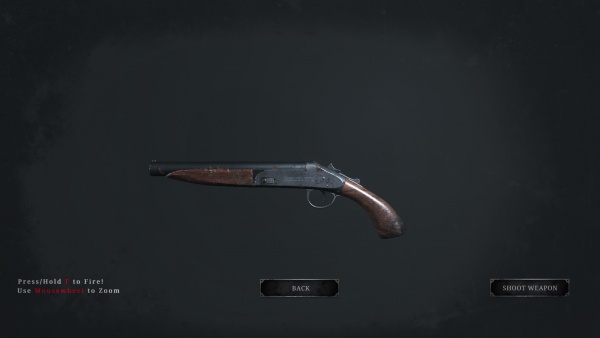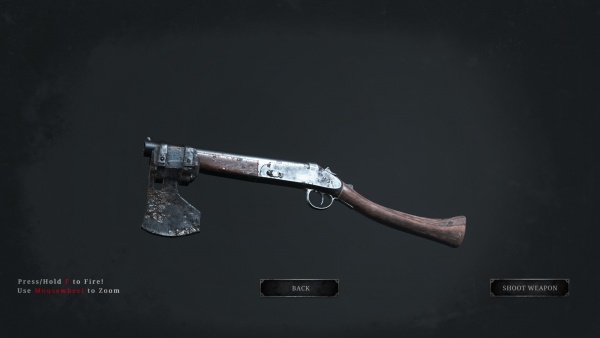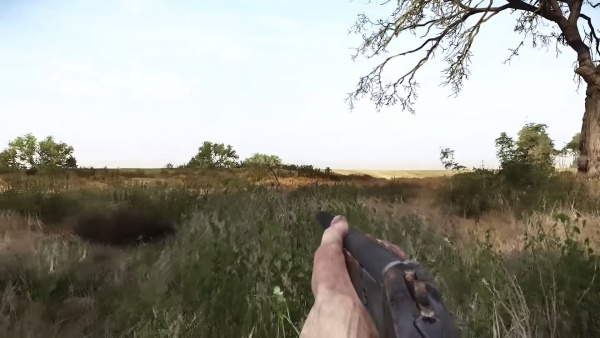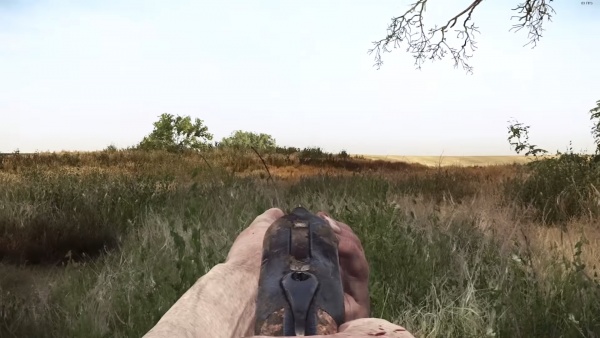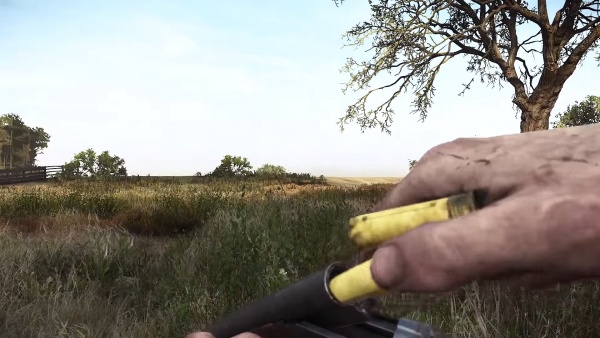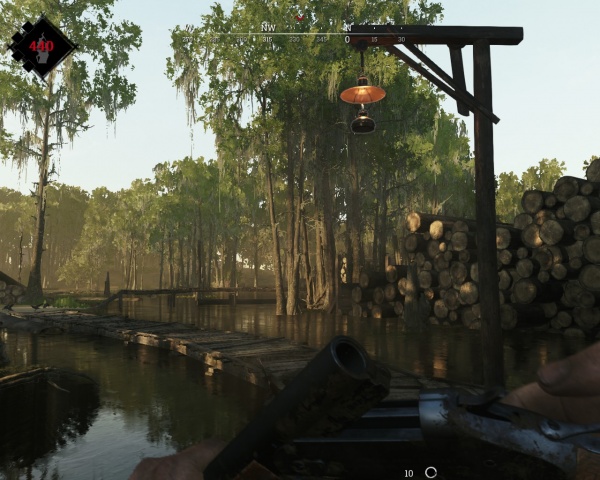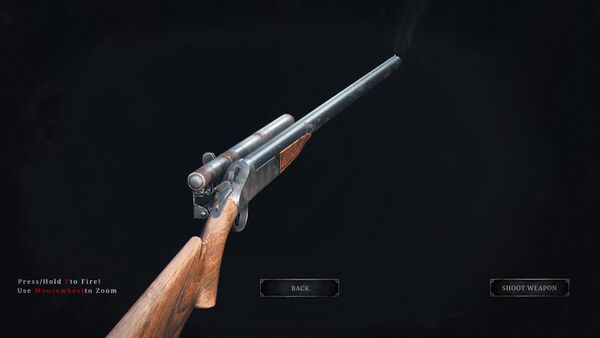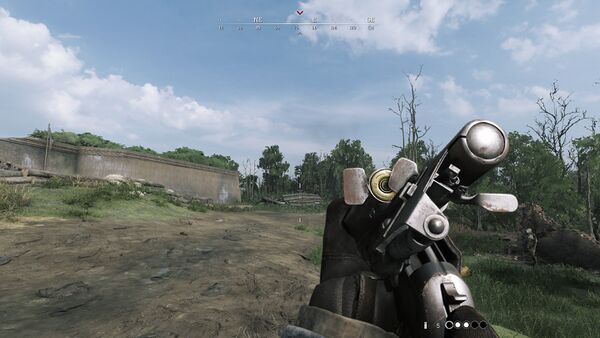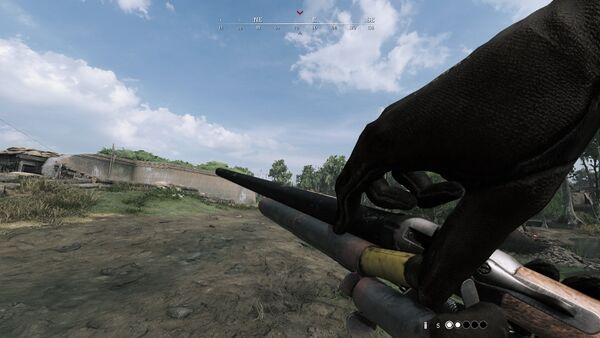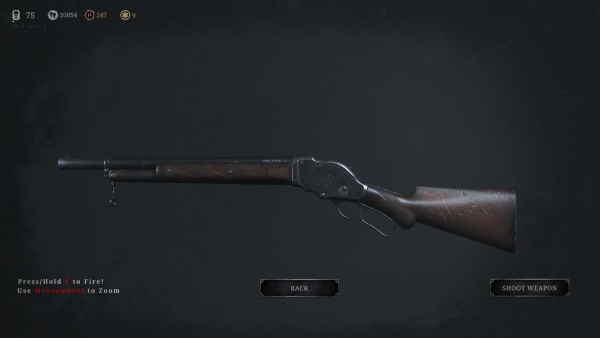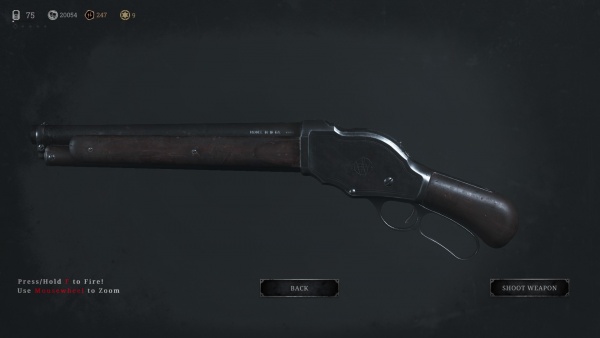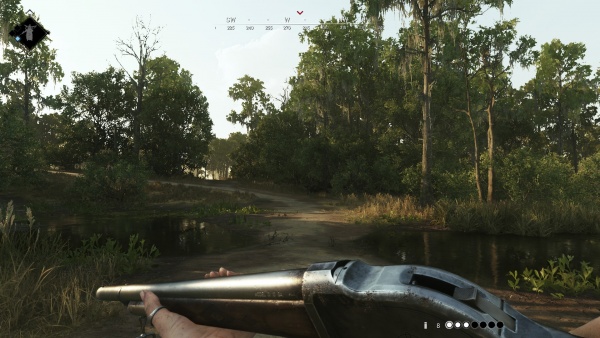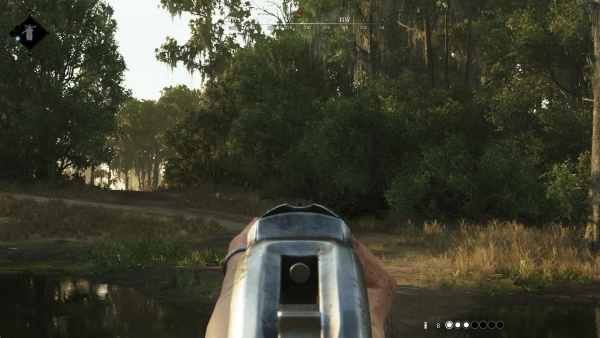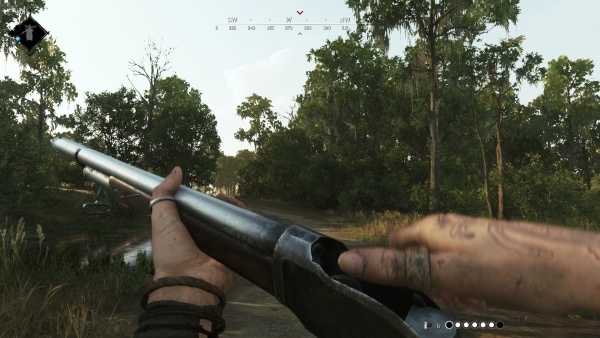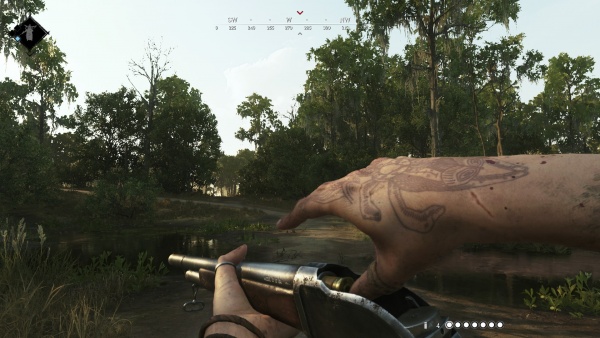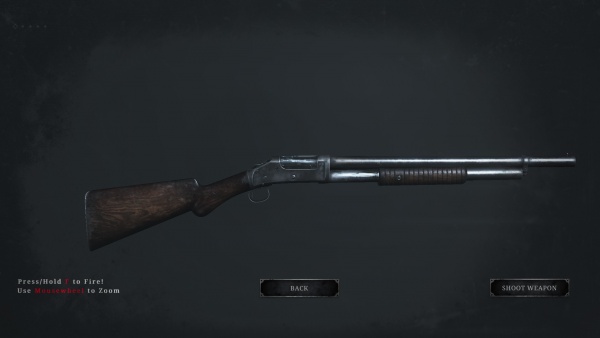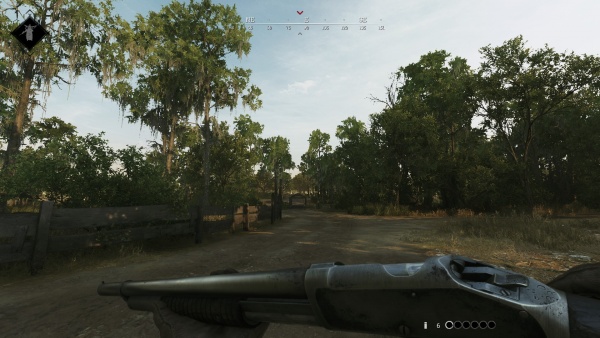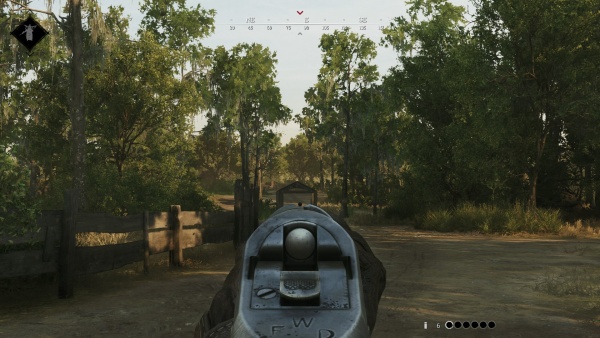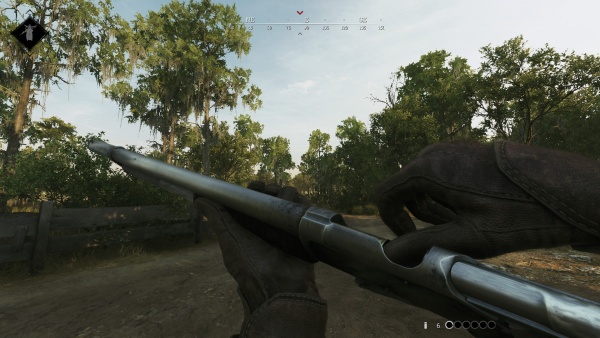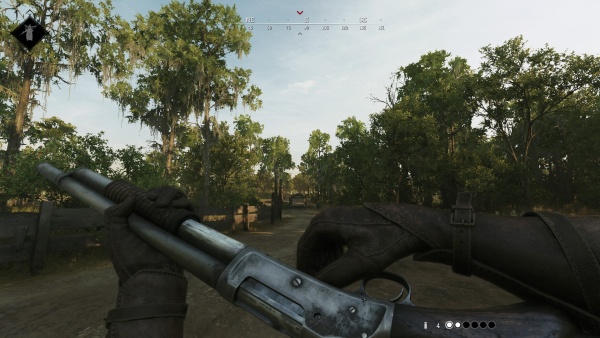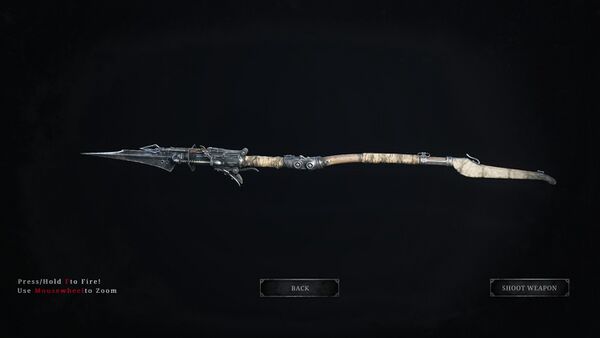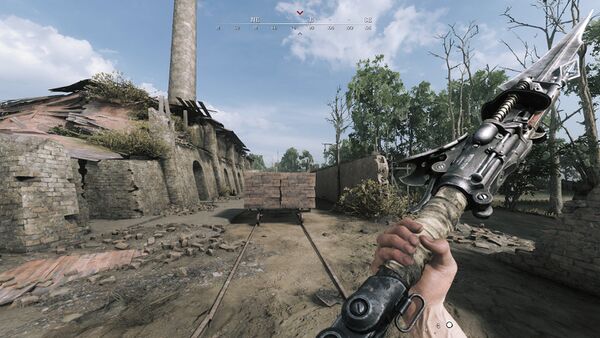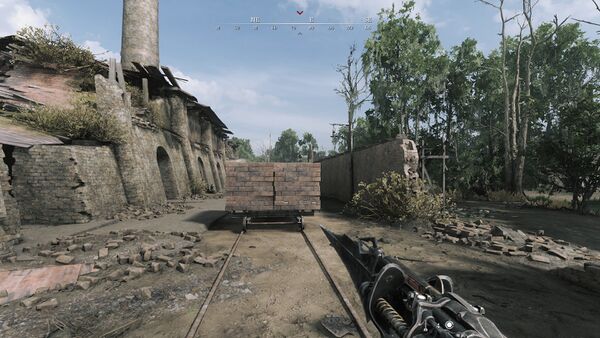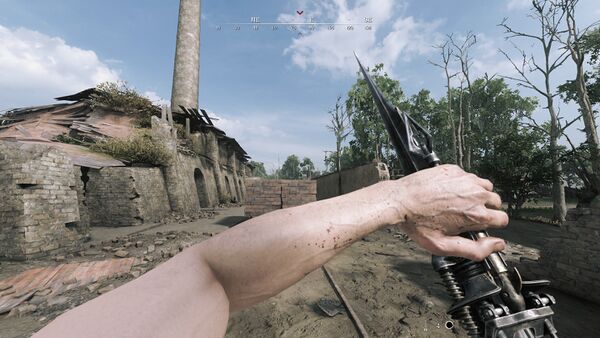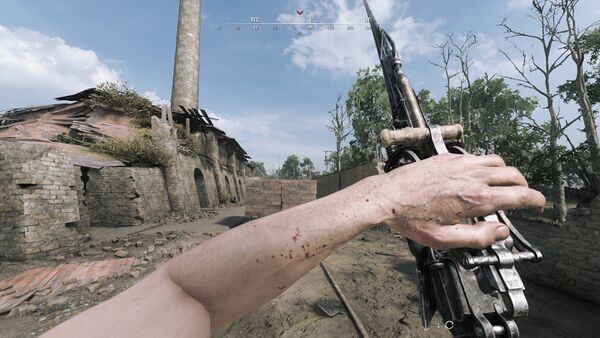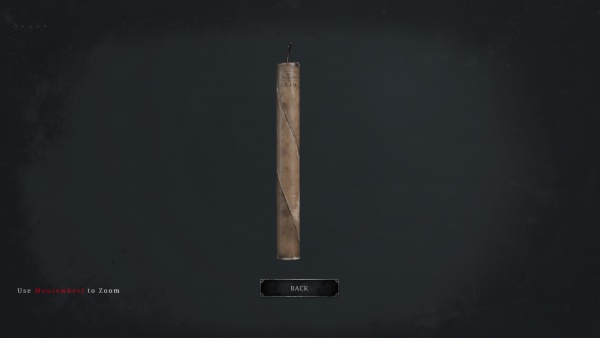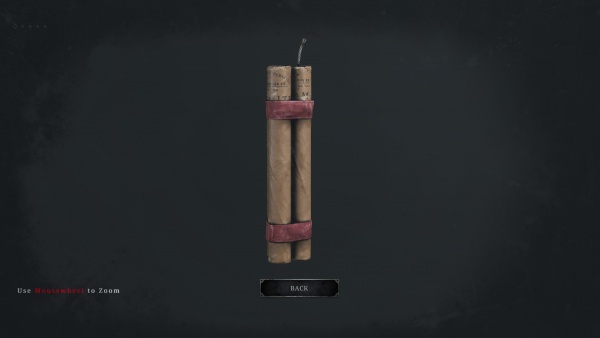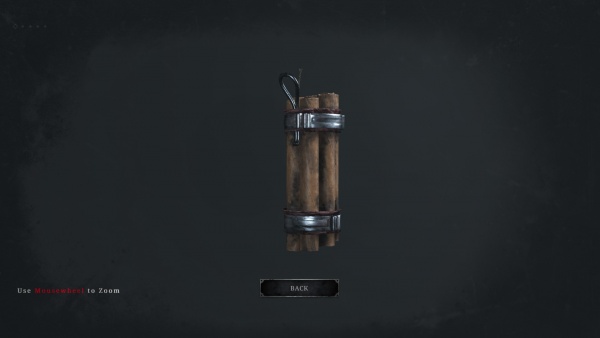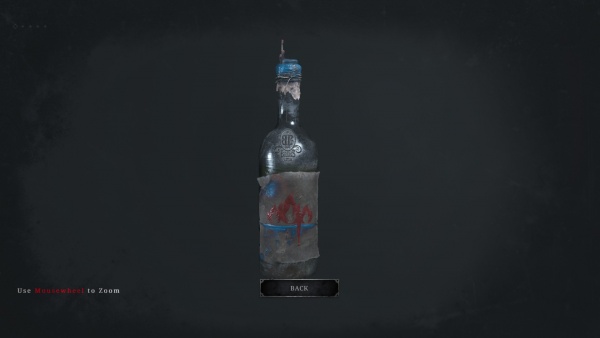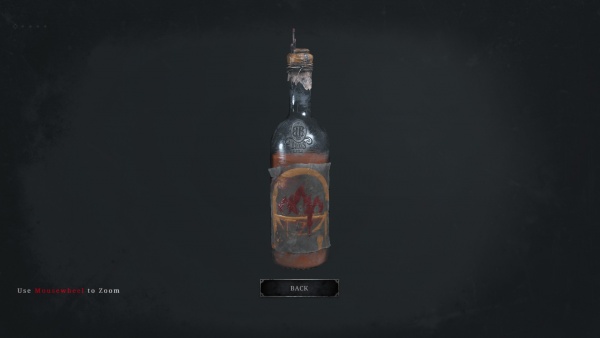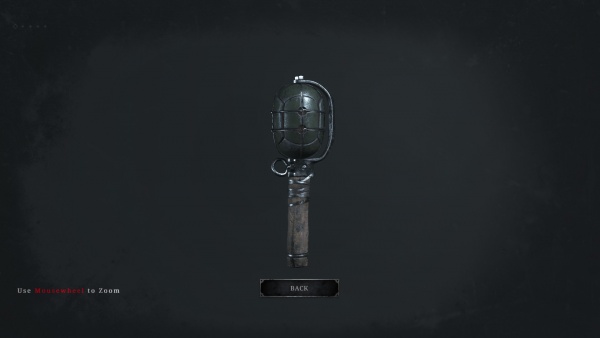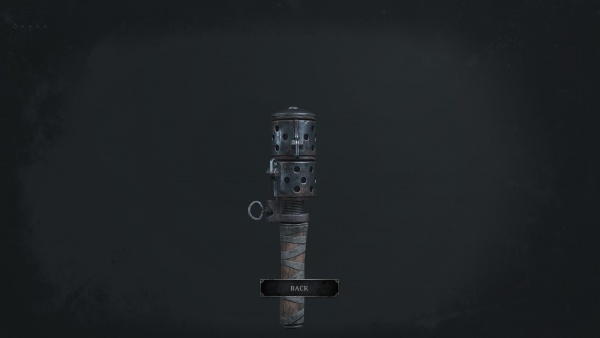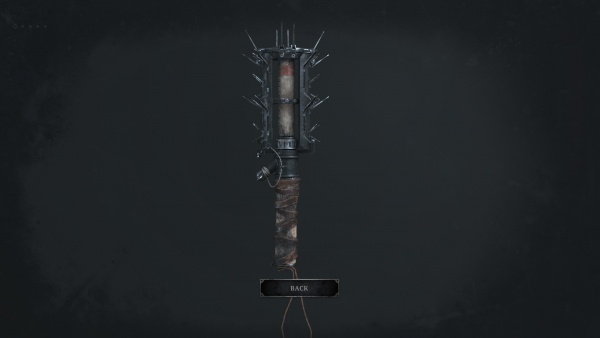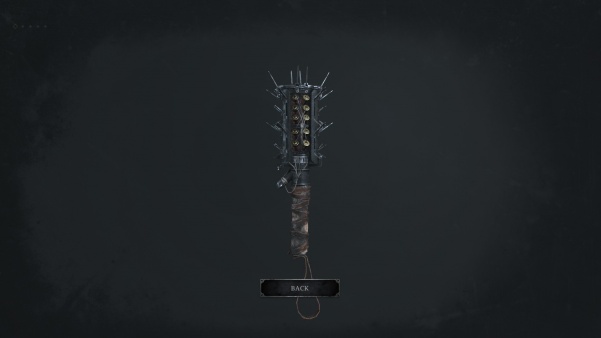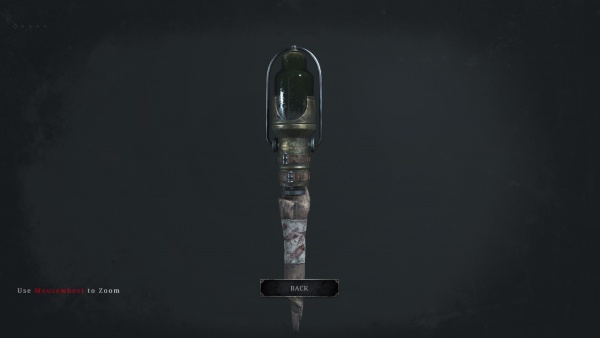| If you have been locked out of your account you can request a password reset here. |
Hunt: Showdown
Work In Progress This article is still under construction. It may contain factual errors. See Talk:Hunt: Showdown for current discussions. Content is subject to change. |
|
Hunt: Showdown is a multiplayer survival horror video game developed and published by Crytek. The game was originally created by Crytek USA, who wished to create a spiritual successor to Darksiders—a video game series developed by their predecessor, Vigil Games—under the title Hunt: Horrors of the Gilded Age. After the initial announcement in June 2014, Crytek USA was shut down due to financial issues, and the development was brought to the Crytek headquarters. The game, under the new title Hunt: Showdown, was re-announced in May 2017. Hunt: Showdown was launched on Steam in early access on February 22, 2018, and was officially released on August 27, 2019. In August 2024, the game received a massive update, which migrated the game to CryEngine 5.11, and added multiple new features along with a new map set in Colorado. This update also changed the names of many of the weapons. The game was also rebranded to Hunt: Showdown 1896 with this update.
The game is set in a supernatural late 19th century, where bounty hunters enter forsaken rural areas overrun with corruption to hunt down dangerous monsters and collect their bounty. The game is PvPvE, with players fighting AI monsters to claim bounties and also fighting each other to take over others' bounties.
The following weapons appear in the video game Hunt: Showdown:
Overview
Set in the late 19th century, Hunt: Showdown takes place in remote several areas, where a mysterious illness has turned much of the local population into mindless monstrosities. Most rise as zombie-like "Grunts", but others are twisted into more inhuman creatures by unknown forces. To make matters worse, demonic creatures from other realms are leaking into the real world. To solve this issue, players control hunters contracted by the mysterious American Hunters Association who enter monster-infested area, track down, and then kill a powerful "boss" creature. However, other players are also present in the game map, either solo or in groups of up to three people. Player-controlled hunters may kill other hunters and compete for the chance to be the first to track and kill the boss.
Once a boss is killed, they must be "banished", a process that takes a few minutes. During this time, all players are informed of the boss's location. The hunter or hunters that killed the boss must grab a bounty token and then find an exit. Other players may kill them and take the bounty for themselves.
Firearms are divided into different categories based on their size and further by the type of ammunition they use. There are five ammo types:
- Compact, which represents most pistol-sized cartridges.
- Medium, representing larger rifle-type rounds.
- Long, which comprise full-sized rifle rounds.
- Shells, which are shotgun shells.
- Special, a term used for ammunition that may be seen as rare or exotic for the setting, like the 7.63x25mm Mauser rounds used by the Mauser C96 or the Nitro Express ammunition used by the double rifle.
The player can take two primary weapons into a match. Weapons fit into one of three size slots- small, medium, or large. Most weapons have at least one variant, which usually add some sort of attachment. These include bayonets, scopes, or suppressors. Other variants may decrease the size of a weapon, allowing the player to take what would normally be considered a "large" weapon into a "medium" slot. Base versions of every weapon are available at the start of every player's career, while variants are unlocked by gathering experience points through using the weapon. Weapons can also use alternate ammunition types, which include explosive ammo, incendiary ammo, shotgun slugs, and high-velocity rounds. Players may equip their hunter with a variety of different weapons, tools, and consumables that best suit their play style. However, if the player's hunter dies during a match, they will lose any equipment bought into the match and that hunter will be permanently removed from the player's roster.
Handguns
Colt Open Top
The Colt Open Top revolver appeared originally as the "Caldwell Conversion Pistol", with an octagonal barrel reminiscent of the earlier Colt 1851 Navy. The 1896 update truncated the weapon's name to just "Conversion". In the "Book of Weapons", an in-game lore book and progress tracker, it is stated to be chambered in .44 caliber (most likely .44 Henry) and was invented by Henry Samuel Caldwell, the Hunt: Showdown universe's apparent stand-in for Samuel Colt. It's also implied to have been used during the Civil War, a strange inclusion but probably referring to it being a conversion of earlier Colt black powder revolvers. The "Conversion" offers slightly more accuracy and damage than the other starter sidearms, while still using the "Compact" ammo type.
There are two variants of the gun in-game, the first is the "Chain Pistol", which uses a series of 17 chambers like the Treeby Chain Gun instead of a normal cylinder. On one hand, you do have to reload all 17 cylinders one at a time, but on the other hand you have 17 shots on call. Combined with certain skills like Fanning or in a pair with Akimbo, you have 34 rounds to throw around to scare, suppress and eventually hit a target.
Both "Compact" ammo variants can use "DumDum" (an antiquated term for what would today be known as expanding or hollow point bullets) that cause severe bleeding damage and FMJ rounds, which increase penetration and damage range at the cost of reduced muzzle velocity.
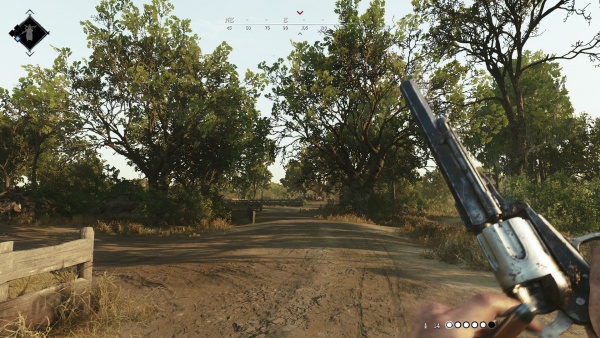
Colt Walker Cartridge Conversion
The other variant of the "Conversion" is quite a bit more interesting. The "Caldwell Conversion Uppercut" (known post-1896 update as simply "Uppercut") is a version with an elongated cylinder that allows the pistol to use "Long" rifle cartridges, greatly increasing its damage at a cost of increased recoil. This stretched out revolver bears a resemblance to the Colt Walker. Two variants were added in Tide of Corruption: the stock-equipped "Precision" variant and accompanying "Precision Deadeye" which comes with a stock and short-ranged scope. It can use incendiary or explosive ammunition.
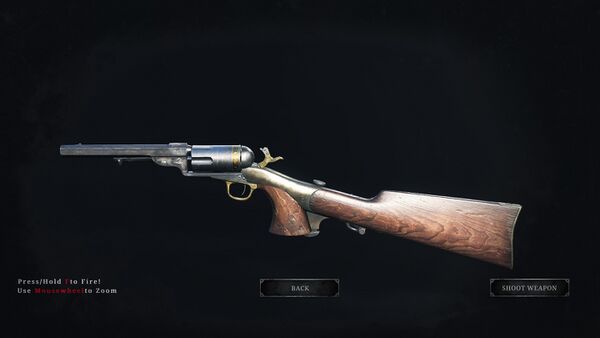
Colt Single Action Army
An update added the Colt Single Action Army to H:S's arsenal, going by the name "Caldwell Pax" ("Pax" being Latin for "Peace", an allusion to the SAA's nickname of "Peacemaker"). Following the naming scheme of other weapons after the 1896 update, the name was shortened to just "Pax". In the "Book of Weapons", the Pax is mentioned as sometimes being referred to as the "Single Action Army". A decent all-rounder, the SAA holds 6 rounds of "Medium" ammunition, and behaves rather like a somewhat tamer version of the cartridge-converted Colt Walker "Uppercut". As with the rest of the game's gate-loading revolvers, the player character incorrectly ignores the ejector rod when reloading. Alternate ammunition options include incendiary, DumDum, poison, high velocity, and FMJ ammo.
The SAA has two variants to its name, first being the "Claw"; this has broken grip panels and a blade attached to the base of the grip, with its main advantage being stronger pistol-whipping. The second was added in the Tide of Desolation event, the "Trueshot", which is based on the long-barreled "Buntline Special" SAA, although the barrel in-game appears to be slightly shorter than that of the 12" Bluntline barrel, being between the lengths of the aforementioned 12" barrel and the 7.5" "Cavalry" barrel. This model is anachronistic to the game's late 19th century setting, as the Buntline is widely believed to have been invented by writer Stuart N. Lake for his (largely fictionalized and embellished) 1931 biography Wyatt Earp: Frontier Marshal, which were later mass produced by Colt when the Single Action Army was reintroduced in 1957. The Trueshot has greater effective range and muzzle velocity, along with slightly higher damage in exchange for a slightly lower rate of fire.
Colt Model 1892
The Colt Model 1892 was added in Update 1.8.1 as the "Caldwell 92 New Army", which was later shortened to just "New Army" in the 1896 update, making it the second double-action revolver available in the game. Compared to the Nagant M1895 Officer, the M1892 deals slightly more damage and has a slightly greater effective range, but has a noticeably lower muzzle velocity and a slightly lower rate of fire. The swing-out cylinder also gives it a much faster reload than most other available revolvers. It currently has one variant, the "Swift", which uses a speedloader to re-up ammo. Like the "Swift" variant of the Schofield revolver, however, any cartridges not expended in the cylinder will be discarded upon reloading. It can use DumDum or FMJ ammo.
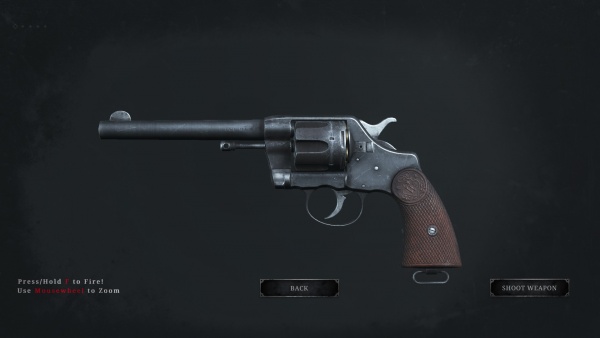
Nagant M1895
The Russian Nagant M1895 appears in-game under its real name, a rarity given the game's usage of pseudonyms for popular firearms and is one of the few guns not affected by a name change post-1896 update. Loaded with "Compact" rounds and quite cheap, it firmly holds a place as one of the beginner sidearms before the player has more dollars and variants to their name. There are two basic models of the Nagant in-game, the normal SAO version and the DAO "Officer" and four variants for each. The Nagant itself is a perfectly fine if mediocre sidearm, with decent accuracy and accurately low damage, but with a seven-shot cylinder in comparison to the other revolvers in the game bar the LeMat. Plus it can easily bump up a loadout's total Compact ammo count, useful for certain primaries.
For the normal Nagant, there is the stock version alongside the "Precision" model. This version is a Nagant fitted with a shoulder stock similar to the Colt Army Special revolver. There is also the "Deadeye" which fits the Precision version with a small mid-range scope. And fittingly, there is a "Suppressed" model, fitted with a homemade suppressor on the end of the barrel.
The Officer's Model versions follow a slightly different path. Beyond the normal version, there is the "Brawler" which fits a large knuckle duster like appendage to the front of the trigger guard and grip for increased melee damage. Then there's the "M1895 Carbine" which, as the name suggests, converts the revolver into a carbine with a longer barrel and the shoulder stock of the "Precision" revolver. And if that wasn't enough, there's also an "Officer's Carbine Deadeye" as a confusing albeit potent short to mid-range sniper rifle. Both models can use poison or high-velocity ammunition.
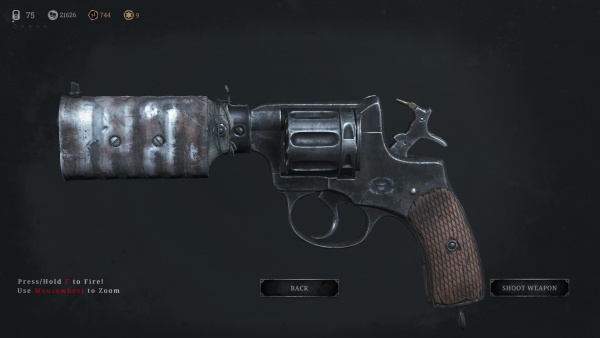
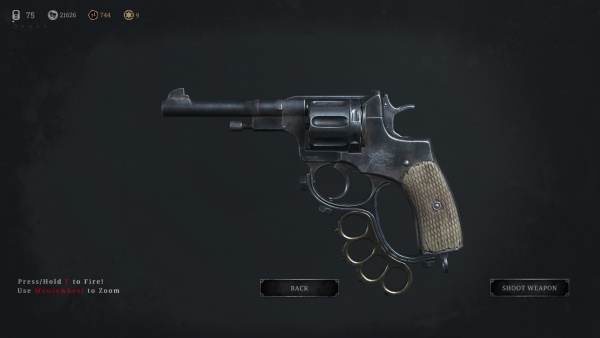
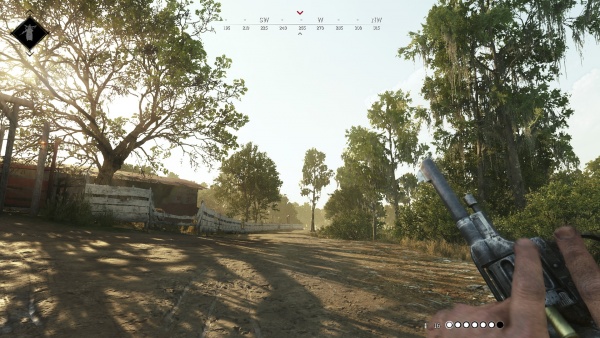
Sharps Pepperbox
The Sharps Pepperbox appears as the "Quad Derringer", unlocked at Rank 66 and equipped as a tool rather than a legitimate firearm. The in-game model appears to be a hybrid of the 1C and 4B "Bulldog" models. Using its own "Derringer" ammo type, this pistol has a small but simple niche. It's a gun for fast firing, low damage output. It holds four rounds in four chambers and fires single-action. Twelve additional rounds are carried. Another added perk is that the Quad Derringer is one of the quietest non-suppressed firearms, so shots from it will not give away your position to hunters who may be some ways off.
Surprisingly there is one variant of the Quad Derringer, which is the mildly insane "Derringer Pennyshot" that replaces the quad .22 Short barrel cluster with two barrels akin to a Remington 1866. And as the name implies, fires Penny Shot from barrels sawn so far back that the ammo pokes through them. What it lacks in accuracy, damage and sense, it makes up for being able to deliver quick bleed damage on targets at point-blank range.

Smith & Wesson Schofield Model 3
The Smith & Wesson Schofield Model 3 was added in Update 1.6.2 under the name "Scottfield Model 3" (later shortened to just "Scottfield", with the new description implying "Scottfield" is the name of the manufacturer). While it lacks the many variants that the Nagant has, the Scottfield is a powerful piece in the right hands. While it has slightly lower damage than the earlier "Pax" pistol, accurately showing the slightly lower performance of .45 Schofield in comparison to .45 LC, it makes up for with very tight sights, good accuracy and a relatively fast rate of fire especially when combined with Fanning. Not to mention the advantage of ejecting all of its rounds in one go. It can also use incendiary, FMJ, DumDum, or high-velocity ammo.
Update 1.7.2 added three variants of the Schofield: the "Scottfield Spitfire", which has a shortened barrel and trigger guard spur often seen on the Smith & Wesson No. 3 Russian Model. This variant features a higher rate of fire, at the cost of worse accuracy. The "Scottfield Precision", which fits the Schofield with the very rare stock featured on a batch of Model 3s made for the Australian Colonial Police. And finally, the "Scottfield Swift", which is the same as the base variant, but utilizes a speedloader for even faster reloads. The trade-off is that a tactical reload can no longer be performed, and that any unfired rounds are discarded and six rounds will always be loaded.
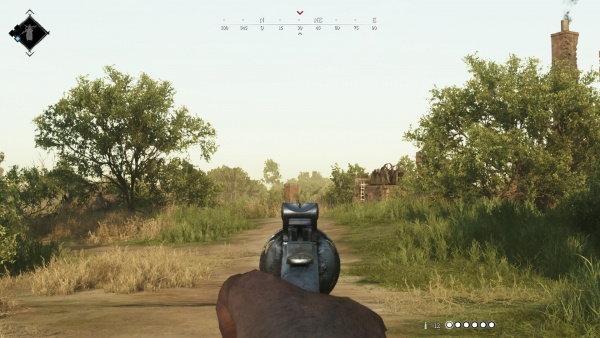
Mauser C96
The German Mauser C96 appears as the "Dolch 96", as the improved semi-auto pistol option over the latter mentioned "Bornheim" that boasts more damage and slight improvements on accuracy at a cost of being much more expensive and using "Special" ammo instead of the more plentiful "Compact". There was initially only one variant of the gun, fittingly the "Dolch 96 Precision" that fits the gun with the shoulder stock. The Tide of Desolation event added two variants, the "Deadeye" which fits the C96 with a short-range scope, and the "Claw", which adds a blade in the grip for enhanced melee.
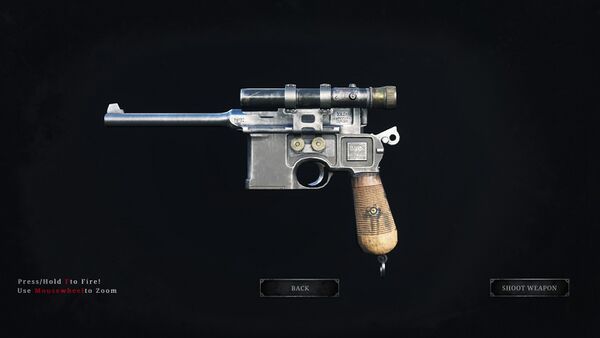
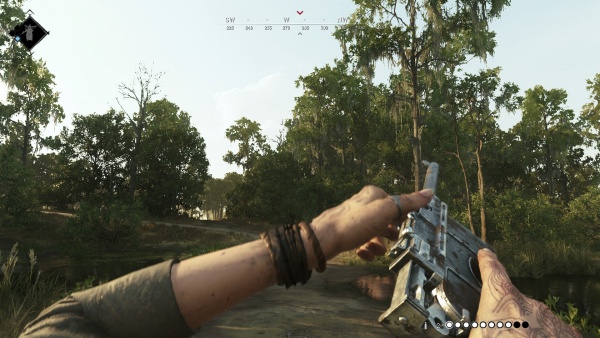
Bergmann 1896
The Bergmann 1896 was added to the game in Update 5.0 as the "Bornheim No. 3" as a new and more interesting sidearm option. In comparison to the gate loader revolvers, it offers a clip loaded, fast firing albeit weak secondary option. It comes with three specific variants. The "Extended" fits the gun with a home-made extended magazine, bumping the capacity from five shots to eight. And if that wasn't enough, there's also a "Match" version with an elongated barrel and wire stock. The Tide of Corruption event added the "Silencer" variant, making it the only currently available self-loading suppressed weapon. It can use incendiary or high-velocity ammo.
Of note is that the weapon is one of the few weapons capable of being affected by the "Bulletgrubber" trait, which recovers rounds ejected (when opening the action) in partial reloads.
Webley & Scott No. 1 Mk. III*
The "Flare Pistol" in-game appears as a Webley & Scott No. 1 Mk. III*, albeit with a somewhat strange hexagonal chamber profile rather than the real flare gun's round one. Like the earlier Sharps, this is classified as a "tool" than a proper firearm. Unlike other tools, ammunition for it can be replenished from Special ammo boxes. It's primarily used for illuminating dark areas, a rarity for any video game flare gun and fitting H:S''s very dark maps. It can also be used to set flammable objects (or enemies) on fire, which allows for flammable creativity.
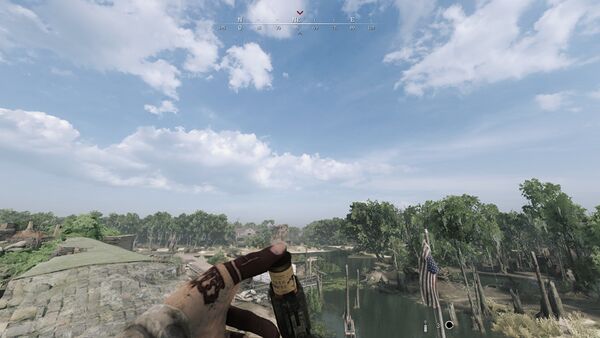
LeMat 1861
Added in Update 6.0, the "LeMat Mark II Revolver" (with its name shortened to just "LeMat" following the 1896 update) is a fictitious cartridge conversion of the LeMat 1861; a rather strange choice, given that actual cartridge-firing versions of the LeMat did actually exist. It is correctly depicted with a 9-round capacity plus an additional shotgun shell, with the lever on the hammer being appropriately moved up or down to fire pistol-caliber rounds (of the "Compact" variety; this presumably makes it a .36-caliber version, though with how vague the in-game calibers are one can't really be sure) or shotgun shells. The pistol alternate ammunition types are incendiary and FMJ, while the shotgun can use "Starshell" (flares), dragonbreath, or slug shells. The LeMat is a wonky gun to use. Lower damage than the Conversion or the Pax and with middling accuracy for both the pistol and shotgun barrel, this thing can be a menace in close quarters with the shotgun barrel and certain skills. And of course, in a pair. The only variant is the "Haymaker" (originally named the "UpperMat" prior to the 1896 update), similar to design and concept as the Caldwell Conversion Uppercut. It is a LeMat with an elongated cylinder and fires Long ammunition. Unlike the Uppercut, the Haymaker is a medium slot weapon and one of the few handguns that is used with two hands, preventing dual wielding. The Haymaker can use poison or FMJ ammo.
The cylinder is reloaded through a side-mounted gate (with there not even being an ejector rod for the player character to ignore this time around, though the cap-and-ball version's loading/ramming lever is still alive and well), and the shotgun is reloaded through a completely fictitious method wherein the player character grabs the barrel and breaks the weapon open; exactly why this method can't be used to reload the cylinder as well isn't clear, apart from the usual "balance reasons".
"LeMat Mark II Carbine"
Added in the Devil's Moon event, the "LeMat Carbine" is a revolving carbine variant of the LeMat, featuring greater stability and effective range for both the revolver and underbarrel shotgun. It is based on the exceptionally rare carbine variant of the LeMat revolver. It has one whole variant, a simple "Marksman" with a scope. It has the same alternate ammunition options as the base LeMat.
Rifles
Winchester Model 1873
The Winchester Model 1873 appeared originally as the "Winfield M1873", albeit in two forms. A version with a seven-shot magazine tube appeared as the "Winfield M1873C", while the formerly named "M1873" model is the standard rifle with a full 15-round magazine. According to the "Book of Weapons", the "Winfield M1873" was known to Confederate soldiers during the American Civil War as "that damned Yankee rifle that they load on Sunday and fire all week"- an adage which was actually used to describe the earlier Henry 1860, not to mention the Model 1873 was first produced eight years after the conclusion of the Civil War. Fast firing, low-ish damage rifles, the 1873's main niche comes with the high rate of fire and the many variants that exist allowing it to be used as everything from a stealth option to a close range high speed bruiser. Or in the case of the Musket Bayonet, allowing you to stab someone.
Post-1896 update, the entire Model 1873 family received a new naming scheme. The seven-shot variants were renamed to "Frontier 73C", while the full-sized rifles became known as the "Ranger 73".
For the "Frontier 73C", there is the "Silencer" which fits the rifle with a large rectangular home-made suppressor. Then there's the "Marksman", fitting the rifle with a scope. If that rifle isn't small enough, then there's the "Vandal", which cuts the rifle down to a Mare's Leg length, allowing it to fit in a "Medium" weapon slot instead of a large one. And if that wasn't enough, there's two more variants of the "Vandal", the "Bullseye" fitted with a short scope and the "Striker" fitted with a short bayonet to increase its melee damage.
The "Ranger 73"'s list of variants is a tad shorter, but not any less creative with its versions. Beyond the normal rifle, there is the "Aperture" which fits the rifle with a Vernier-style peep sight that makes it a little more accurate at mid-range. Then there's the "Talon", which fits a large knife like assembly to the stock to allow the rifle to double as an axe. The "Swift" takes a neat twist by modifying the rifle to accept speed loader tubes, shortening the reload time.
Rounding out the "Winfield" repeater family is the "Infantry 73L", known as the "M1873 Musket Bayonet" before the 1896 update, taking cues from the rarely-seen Model 1873 Rifle Musket. In previous versions of the game, the only member of this collection of rifles was the "Musket Bayonet" variant, which has a spike bayonet. The 1896 update added a base version with no attachments, as well as a long scope equipped "Sniper" variant.
Both the full-sized and compact M1873s can use incendiary or high-velocity ammo, while the full size can use FMJ ammo as well.
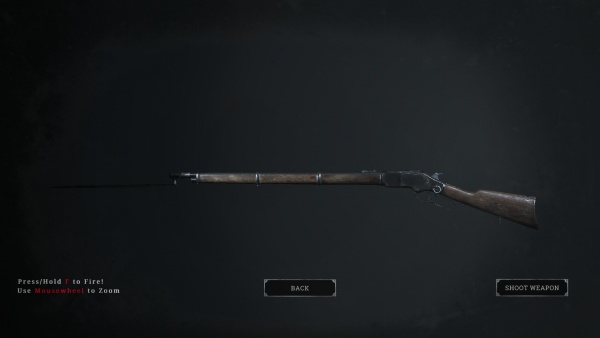
Winchester Model 1876
Added in Update 1.5, the Winchester Model 1876 appeared as the "Winfield M1876 Centennial" (a reference to a marketing name of the real weapon, which was in turn a reference to the 100th anniversary of the signing of the US Declaration of Independence) in previous versions before being renamed to simply "Centennial" in the 1896 update. Serving as a harder-hitting alternative to the 1873 above, it uses Medium ammo (rather than the 1873's Compact), with higher damage, penetration, and muzzle velocity, at the cost of, well, cost (substantially higher than any 1873 variant), along with a lower fire rate, and a 9+1 capacity. Variants include a long scope equipped "Sniper" variant, the "Shorty" that reduces its size to a medium slot, along with the "Shorty Silencer" that does the aforementioned along with adding a suppressor, and the "Trauma", which has a broken stock replaced with metal junk, which allows it to be used as an ad-hoc sledgehammer in melee combat.
It can use poison, FMJ, high-velocity, and DumDum ammunition.
Sharps 1874
The Sharps 1874 first appeared as the "Sparks LRR" (Long Range Rifle) chambered in .45-70, renamed to just "Sparks" after the 1896 update. Prior to the version 1.5.2 (released for testing on May 11th 2021), the rifle was set to half-cock during reloading. While appropriate for an earlier, percussion, Sharps rifle this behavior was inaccurate for later cartridge firing models. This was corrected after the error was mentioned by Jonathan Ferguson (Keeper of Firearms & Artillery at the Royal Armouries museum), whose feedback was cited in the patch notes. A large piece for the bayous, the "Sparks LRR" serves as the king of long ranged combat in the game, with a damage range of 250 meters and high damage to boot. Don't get too scared, it's a slow gun to reload and not too good up close, so it's not too potent in close-quarters. It comes with only two versions, those being the "Sparks Sniper" which fits a scope, and the "Sparks Silencer" which is a bit self-explanatory.
Released with the "Serpents Moon" update, the "Sparks Pistol" was added as another variant, albeit one whose name makes it stand out from the rest of the versions on offer. A standard Sparks rifle sawn down to a pistol length, it sacrifices much of its range and sight options for a close range one to two shot blast on any hunters unfortunate to run into you. Oh, and it can also be dual wielded. All variants can use incendiary, poison, and FMJ ammo.
Vetterli M1869/71 Carbine
The Swiss Vetterli M1869/71 Carbine appeared as the "Vetterli 71 Karabiner", renamed to "Vetterli 71" after the 1896 update. The Vetterli is a punchier upgrade from the starter "Frontier 73", with more damage (due to it using Medium ammo) and a little more accuracy as a trade off for a slower rate of fire. There's five variants to this rifle, the "Vetterli 71 Deadeye" which adds a scope, the "Vetterli 71 Marksman" with a longer range scope, and the later "Vetterli 71 Bayonet" which adds a large sword bayonet for melee combat. The fourth added variant (added alongside the Schofield Model 3) is a suppressed Vetterli, added after the community campaigned for a new Vetterli type on Reddit. The Tides of Corruption event added a fifth variant, the "Cyclone", which is a semi-automatic conversion with an action from the Howell Automatic Rifle, which has a reduced capacity of 3+1. It can use incendiary, FMJ, or high-velocity ammunition.
Mosin Nagant M1891
The Mosin Nagant M1891 appears under its real name, a rarity at lower levels and one of the high-tier weapons. It appears to be mostly based on the 3rd configuration of the M1891 infantry rifle due to having a front sling swivel, an upper handguard, and an open blade front sight. It also has a rear sight similar to a M1891/30 and a turned down bolt handle. While most games treat the Mosin as average, the rifle is anything but in H:S. Powerful, relatively long ranged, and fast-firing, this gun turns heads real quick when it shows up in a fight.
Being the top-tier rifle, it comes with a large mix of variants. There's the "Mosin-Nagant Bayonet" which adds the classic socket bayonet, the "Marksman" adds a scope and the most kooky is the last major version, the "Avtomat". Taking cues from the WWI-era Huot Automatic Rifle, this is a 15 round capacity, automatic conversion of a Mosin that is as inaccurate and terrifying up close as you're imagining. Interestingly, the "Avtomat" variant fires a minimum of three rounds when fired. Tapping the fire button on your controller or briefly clicking your mouse will not produce single shots. While devastating in close range, the Avtomat is balanced by being nearly uncontrollable when firing even a single burst and its habit of rapidly chewing through ammo. Beyond that, the player's hunter carries no reserve ammunition for the weapon at all. A single engagement will most likely have the Avtomat's user scrambling for an ammo box (considering that ammo boxes also give out miserly amounts of ammo upon use, they will most likely be scrambling for several ammo boxes). It is also the most expensive item in the game, at $1,250.
And before you think this is over, there is also the sawn off Mosins. Yes, this game has an "Obrez", allowing you to put a Mosin in a "Medium" sized slot, but that's not all. There's the "Mace" version that bundles up the end of the stock into a makeshift whackey stick and even more fun, the "Drum" which gives an Obrez 15 rounds of 7.62x54mmR to deal with problems. Every variant, save the Avtomat, can use incendiary or spitzer ammunition.
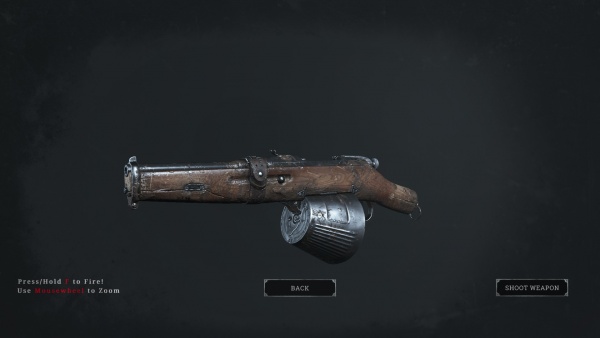
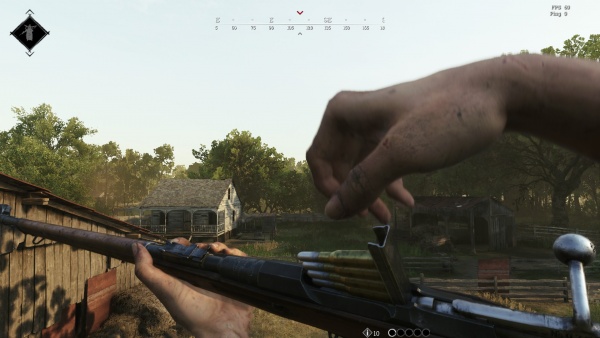
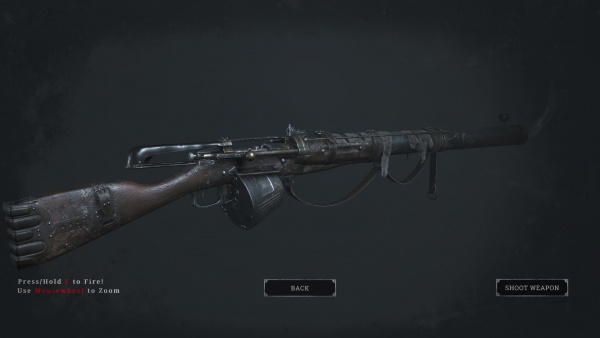
Double Rifle
A double rifle, possibly a Holland & Holland, appears as the "Nitro Express" and has no variants. The "Nitro Express Rifle" is a heavy hitter in every department. A borderline one-shot on enemy Hunters from close to medium range, and can easily tear up boss monsters if you're careful. However, the iron sights are cramped and hard to use, the gun kicks like a mule and it carries little ammo into battle. Furthermore, ammo can only be restocked at "Special" ammo crates, which are much harder to come by than regular ammo supplies. But, you can also rock it with explosive ammunition (because there's no such thing as overkill) or "Shredder" ammunition that causes severe bleeding damage on anyone who manages to survive the initial volley. The double rifle is also one of the loudest weapons in the game and shots from it are discernable from upwards of 1,000 meters away.
Combination Gun
A Drilling-style combination gun was added in the Tide of Shadows event as the "Drilling". It features two side-by-side rifle barrels firing Medium ammo and a single shotgun ammo barrel underneath. The two rifle barrels offer good damage and range with rapid-follow up capability, while the shotgun barrel allows for some close-range firepower in a pinch. The main downside, of course, is the limited capacity for both ammo types. Two variants were added in the Tide of Desolation event, the "Handcannon" and "Hatchet", both of which involve shortening the barrels and removing the stock in the style of the shotgun "Handcannon" variants, with the hatchet getting a hatchet head crudely affixed to it for melee.
The rifle barrels can use DumDum or FMJ ammo, while the shotgun barrel can use "penny shot" (replaces pellets with coins that scatter over a wider area and can deal intense bleeding damage), flechette, or slug ammunition.
Lebel 1886
The Lebel 1886 was added to the game in Update 6.0 under its real name. It holds 10 rounds, representing the Lebel's ability to hold eight rounds in the magazine, one on the elevator, and one more in the chamber. The Lebel serves as a line of demarcation between the previous black powder rifles and the smokeless ones, because it flips a lot on its lid. A little clunky with the RoF, but deadly in damage and especially in muzzle velocity. You don't know how much lead you need with black powder until you snipe someone with the Lebel without even thinking about aiming for windage.
The Lebel's variants are fairly modest. There's the "Marksman" version that fits it with a scope, alongside the "Talon" version that fits the stock with blades to allow you to use the gun as a sort-of axe, and the "Aperture", which adds a Vernier peep sight. It can also use incendiary or spitzer ammo.
Berthier Modèle 1892 Artillery Carbine
Update 1.7 added the Berthier Mle 1892 Artillery Carbine as a "Long" ammunition weapon under its real name. It performs similarly to the Lebel 1886, with a smaller magazine capacity of three rounds, but much faster reload speed. It is unique among the Long ammo rifles in its use of an en bloc clip to reload. It currently has three variants, a short-scope equipped "Deadeye" variant, long-range scope "Marksman" variant, bayonet-equipped "Riposte" variant, and can use incendiary or spitzer ammo like the Lebel.
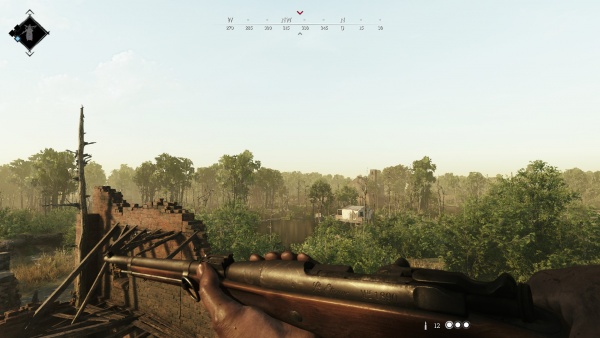
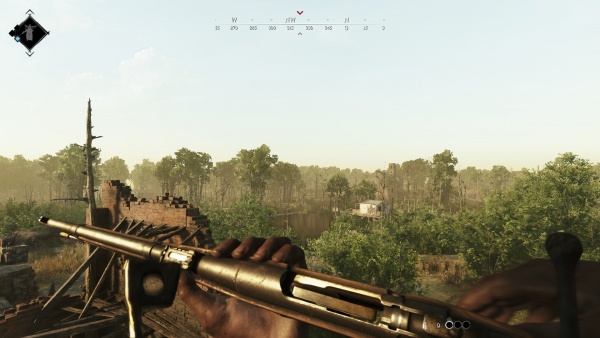
Martini-Henry IC1
The somewhat obscure IC1 (Interchangeable Carbine Mark 1) variant of the Martini-Henry (so named due to its ability to swap between artillery and cavalry configurations) was added to Hunt in the 1.1.3 patch. It serves as an alternative to the Sharps, with the main tradeoff being a faster reload in exchange for a slower muzzle velocity and poorer long-range effectiveness. It can use incendiary, explosive, or FMJ ammo. Initially referred to as its complete, correct designation, the name was shortened to just "Martini-Henry" after the 1896 update.
Aside from the standard variant, there is a "Riposte" version with a bayonet (showing that the IC1 is in its artillery configuration, as the cavalry setup lacks a bayonet lug), and a "Deadeye" variant with a low-powered scope. Introduced in the Devil's Moon event, however, is a much more interesting variant- the "Martini-Henry Ironside". It is fitted with a mechanism based on the Hartson quick loader, an experimental magazine-like device intended to convert the single-shot Martini-Henry into a five-round repeating rifle. Invented by Captain Charles Greville Harston in 1887, this device ultimately was rejected for use due to reliability issues. However, in H:S, the "Ironside" variant gives hunters access to an economical Long ammo repeating rifle that holds five rounds in the magazine with one in the chamber.
Springfield Model 1866
Also added in the 1.1.3 patch was a Springfield Model 1866, an early variant of the Trapdoor Springfield Rifle chambered in .50-70 Government (a fact which is mentioned directly in-game, where it uses generically-named "Medium" ammunition). Cheap and commonly found on free hunters, it typically serves as the player's first experience with long-ranged breechloaders with decent accuracy, damage and range. Nothing too spectacular, but nothing overtly bad. A good feeler gun for gauging how you want to play the game. It can also use DumDum, poison, or explosive ammunition.
And if that wasn't enough, it comes with five whole variants. There's the obvious for a gun like this, a "Marksman" version fitted with a scope, and with Tides of Corruption, a "Bayonet" variant. And then there's the not-so-obvious like the "Compact" version which saws off a majority of the gun to let it fit in a medium slot and work as a pocket handcannon. And if that wasn't enough, there's also a "Striker" version that fits the gun with a tiny and mildly adorable bayonet, and hilariously, a "Deadeye" version that fits a sawn off rifle with a tiny little scope.
Springfield Model 1892 Krag-Jørgensen
The Springfield Model 1892, the first U.S. manufactured version of the Krag-Jørgensen, was added in the Devil's Moon event. It appeared under the name "Springfield M1892 Krag", but was renamed to just "Krag" following the 1896 update. Behaving like a slightly tamer Mosin Nagant, the Krag sacrifices a smidge of damage in exchange for its unique capsule magazine, allowing easy topping up of the mag without needing Bulletgrubber like the other smokeless powder rifles. It does mean a slower reload, however.
It currently has two self-explanatory variants, the "Bayonet" and the "Sniper", and can use incendiary or FMJ ammo.
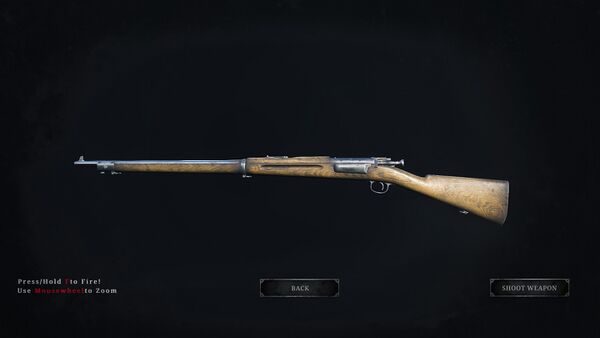
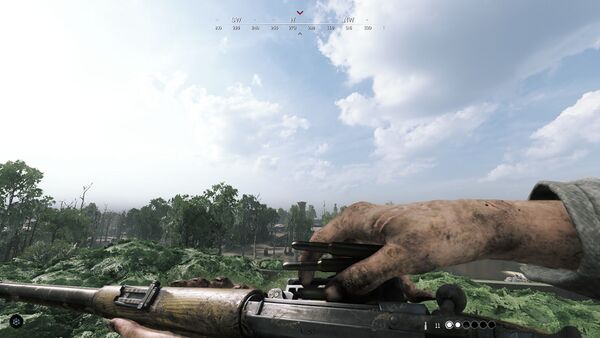
Colt Lightning Carbine
Added in the Desolation's Wake event was the Colt Lightning Carbine, the first pump-action rifle and a much-requested weapon from the community, appearing with the name "Caldwell Marathon", later shortened to just "Marathon" post-1896 update. Firing Compact ammunition, this rifle is potent at mid- to close-range, boasting a large magazine capacity of 15+1, very good damage output for its ammo type, a fast cycling rate, and modest recoil. It is slightly hampered by its clunky nature, especially through a long reload time. The action must also be open to load, potentially wasting a precious round if a tactical reload is performed without Bulletgrubber. It only has one variant, the speedloader-enabled "Swift", and can use FMJ or poison ammo.
Marlin Model 1895
Also added in the Desolation's Wake event was the original-model Marlin Model 1895 under the name "Mako 1895 Carbine", with the "Carbine" suffix dropped after the 1896 update. It represents the first Long ammo lever-action rifle in the game. It performs similarly to other Long ammo rifles, while being less expensive than the likes of the Mosin or Lebel. It deals much more damage, has greater range, and higher muzzle velocity compared to other lever-action rifles, at the cost of a slower cycle time and much higher recoil. It also has the lowest capacity of the full-sized lever-actions, at 6+1. And of course, like all other lever-action weapons, it can make use of the Levering trait for some devastating close-range fire. The description before the 1896 update described it as "from a new manufacturer in competition with Winfield [the game's Winchester Repeating Arms analogue]". Minorly accurate, as Marlin Arms was founded in 1870 and would produce their first lever action rifle in 1881.
It currently has two variants, the "Aperture" and "Claw", and can use explosive or FMJ ammo.
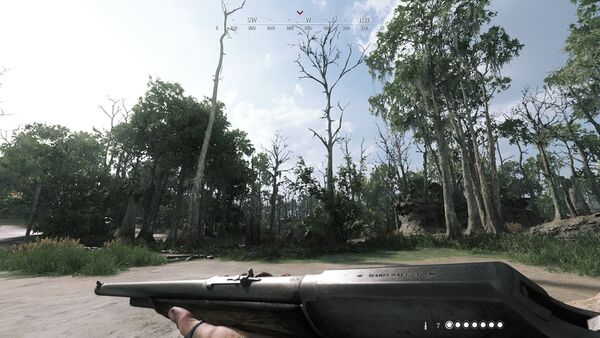
Spencer 1860 Carbine
The first new weapon post-1896 update, the Spencer 1860 Carbine was added in the Scorched Earth event as the "1865 Carbine" (a name implying the rifle was first manufactured five years later than it was in actuality). It fires Medium ammunition and is hard-hitting at close to medium range, with a seven-round magazine. It is hampered by its complex reload (which makes topping off a handful of shots much slower compared to other lever-actions) and slow cycle time compared to similar rifles in its class. It is the only lever-action weapon that cannot use the Levering trait for rapid hipfire, as both the lever and hammer must be manually cycled after each shot, requiring all hands on the rifle at all times. It can use FMJ ammo and currently has no variants.

Maynard Carbine
The Maynard Carbine was introduced in the Harvest of Ghosts event in October 2024, as the first percussion cap weapon in the game, under the name "Maynard Sniper". As the name implies, it is equipped by default with a "Long Malcom" sniper scope and is so far the only weapon to be equipped with a scope in its default variant. It is based on the Second Model Maynard, and uses an external percussion cap as opposed to the Maynard Tape Primer system. There is also an added wooden foregrip, present on some post-American Civil War sporting rifles and modern reproductions.
While seemingly primitive considering most other weapons in the game use metallic cartridges, the Maynard is not to be underestimated. It uses Medium ammo, and deals very high damage, more damage than most of the Long ammo rifles, with the added advantage of Medium ammo weapons carrying more ammo into a match and receiving more spare rounds from ammo boxes than Long ammo weapons. It is balanced by being single shot, of course, and having a slow reload speed (a whole five seconds) hampered by the need to replace a percussion cap instead of just slotting in a new cartridge. It can use DumDum or high velocity ammo and lacks any other variants for now.
Shotguns
Browning Auto-5
The Browning Auto-5 appears as the "Crown & King Auto-5", later shortened to the fictional trademark free name of "Auto-5" following the 1896 update. Fitting the creep in RoF that the shotguns in H:S have, the Auto-5 is the absolute king of that mountain. Fast firing and potent, with a correct capacity of 4+1, this will cause you to chew through your stockpile of shotgun shells if you're not careful. It can use penny shot or slug ammo and currently has no variants. It has one variant introduced in the Harvest of Ghosts event, the "Auto-4 Shorty". Rather self-explanatory, this variant is a Medium slot, sawed-off shotgun that can be a handy surprise for opponents, but keep it in close-quarters. It also has a reduced capacity of 3+1.
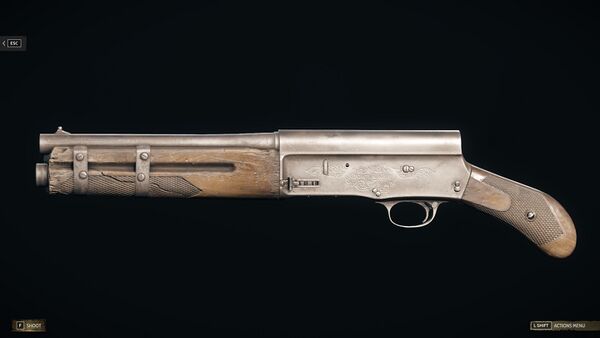
Colt Model 1878
The Colt Model 1878 Coach Gun appears as the "Rival 78". In comparison to the earlier "Romero 77", the "Rival" functions more as a close quarters shotgun intended for blasting targets at very close range. Its damage output struggles the farther you get from a target, so it's best to make sure you can see the whites of your enemies eyes when using this. The fact that a sawed-off, medium slot converted "Shorty" version is available reinforces this idea. It can use flechette, penny shot, or slug ammo. The Harvest of Ghosts event added two variants, one for the full-sized, and one for the sawed-off variety- the "Trauma" and "Mace", respectively. Both variants are much the same in concept- adding some metal to the end of the gun for improved close-quarters brutality.
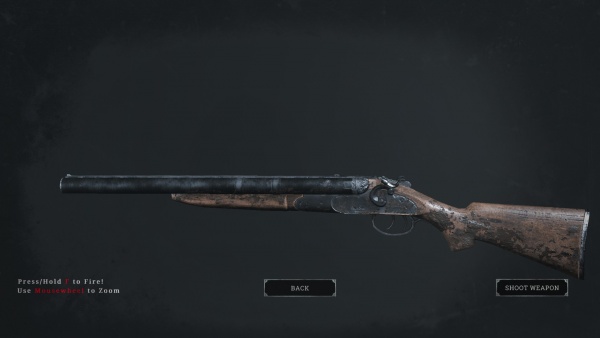
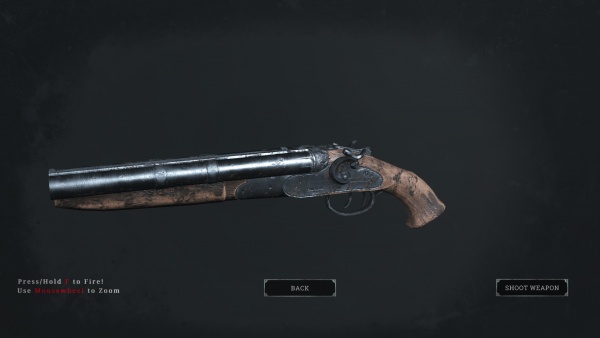
Spencer 1882
The Spencer 1882 appears as the "Specter 1882", the first of the more complex shotguns the player will likely get their hands on. The gun is faithfully rendered, albeit with a 4+1 capacity in comparison to the real gun's 5+1. After getting into the routine of break action boomsticks, the "Specter" breaks that routine and runs with it. No longer are you doomed from not being able to double tap a target, now that all you have to do is rack another shell into the gun to be on your merry way murdering your enemies with gusto. Keep in mind that it doesn't work like modern pump shotguns, and its reload is one complicated series of hand gestures to pull off.
The "Specter" boasts a very short but interesting list of variants. The first is a "Compact" model that cuts down the stock, barrel, magazine tube to make a compact repeater shotgun, reducing it to a "Medium" slot blaster. In addition to the obvious hits to effective range and controllability, it has a smaller capacity of 3+1. There's also the "Bayonet" model which fits the shotgun with a bayonet mount similar to WWI-era trench guns, alongside a legitimate bayonet. It can use flechette, dragonbreath, penny shot, or slug ammo.
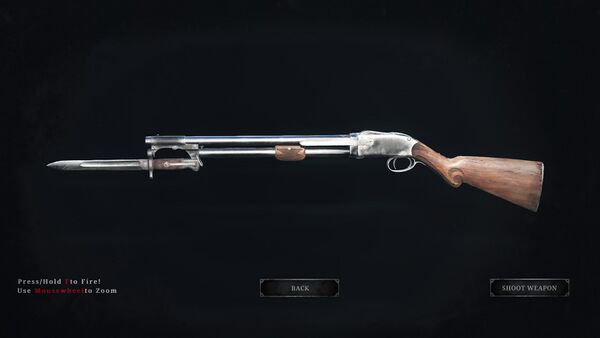
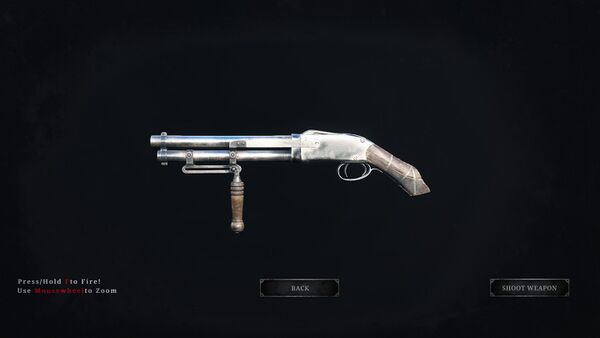
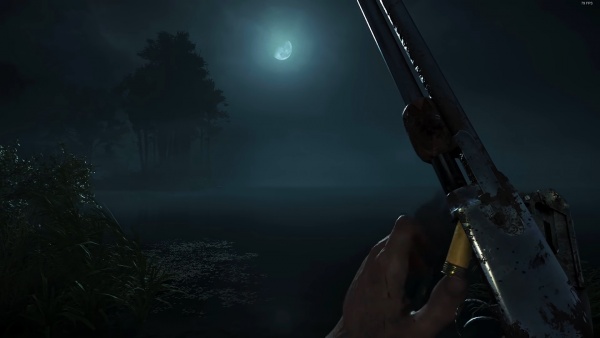
Single Barreled Shotgun
A Single Barreled Shotgun appears as the "Romero 77" (possibly a reference to director George A. Romero), serving as the cheapest shotgun available to the player in H:S'. Just because it's the cheapest and simplest in design doesn't mean you should get comfortable though, because the Romero is a potent gun in the right hands. It has the best one-hit-kill range and tightest spread of all the shotguns. Nothing will instantly humble you as losing your run to a Cajun bayou dweller who one taps you with one of these.
Likewise, the Romero boasts three major variants to itself. There's the obvious of a sawn-off version, the "Handcannon", that allows you to carry an entire shotgun in a medium slot for pennies. The "Talon" allows you to pull melee and close range duty in one package, and if that's too big for you, then there's the "Hatchet" version. Yes, you read that right. The Handcannon version with an elongated stock so you can use it as a hatchet. Creativity at its finest.
Added in the Serpent Moon update alongside a rework to shotgun damage models is the "Romero Alamo", a variant based on the Alofs Repeating Shotgun system. Like its real life counterpart, it's a large magazine fed contraption bolted onto the side of the Romero, anachronistic to the 1890s era of H:S as the Alofs system wasn't patented until 1924. Beyond being one of the cheapest repeating shotguns in the game, the Alamo also has the ability to be topped up fully without Bulletgruber, and with high accuracy and damage given the long barrel. It is also the slowest repeating shotgun in the game, with a rate of fire of a withering 22 rounds per minute making it slower than even its normal single-shot counterparts, and its wonky magazine system makes reloading even slower.
All variants can use starshell, dragonbreath, penny shot, or slug ammo.
Winchester Model 1887
The Winchester Model 1887 was added in Update 1.5, named the "Winfield 1887 Terminus" (presumably a reference to its iconic appearance in Terminator 2: Judgement Day) and shortened to just "Terminus" after the 1896 update; it serves as a more expensive, slower-firing, harder-hitting alternative to the Spencer (the latter being explained by its chambering - 10 gauge, according to the markings on the barrel). Interestingly, it has a 5+2 capacity; while the nominal capacity of an 1887 is 5 rounds in the tube and one in the chamber, an additional round can be placed on the lifter; this detail is replicated in its in-game reload animation. It can use flechette, penny shot, or slug ammo.
A sawn-off, Medium-slot variant called the "Handcannon" is also available; aside from a cut-down stock and barrel, this also has a shorter four-round magazine tube.

Winchester Model 1893
Update 1.8.1 also added the Winchester Model 1893 as the game's second pump-action shotgun, under the name "Winfield 1893 Slate", later just "Slate" following the 1896 update. It currently has one variant, the "Riposte", which takes heavy inspiration from the later Winchester Model 1897 "Trench Gun", fitting the M1893 with a heat shield and bayonet. The Model 1893 is the somewhat obscure, ill-fated predecessor to the much more prolific Winchester Model 1897, designed to use black powder 12 gauge shells. Hunt: Showdown marks what is possibly the first popular media appearance of this shotgun. It is equipped with a 20" Riot barrel, which was not a standard option, but available as a special order through Winchester. It correctly holds five shells plus one in the chamber, and can use penny shot or slug ammo.
Compared to the earlier Spencer 1882, the "Slate" boasts a higher rate of fire and no weird hand motions as the earlier Spencer, at a cost of slightly less overall muzzle velocity and costing a lot more.
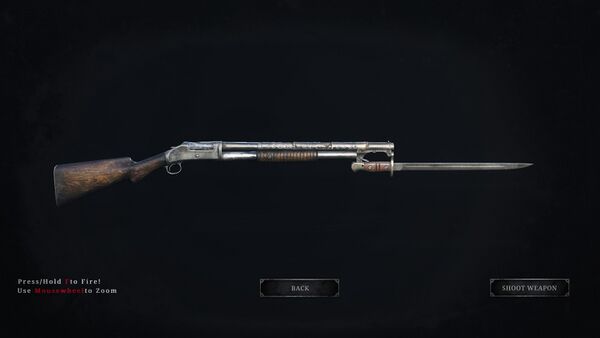
Other
Bomb Lance
Added in Update 6.0, the "Bomb Lance" is described as a whaling harpoon launcher adapted for use on land. It consists of a large fixed blade that is used for melee and a spring-loaded harpoon launcher that launcher harpoons with explosive charges. The harpoons stick into most surfaces or enemies and detonate after about two seconds. Both forms of the weapon deal immense damage, with one light attack from the blade enough to down a hunter at full health and the explosives harpoons capable of killing every AI mob with a single charge, with bosses being able to be killed in three direct hits. It is a slightly unwieldy weapon to use and takes some practice to utilize effectively, and the harpoons themselves deal very little direct impact or splash damage. It uses Special ammo, with three alternate ammo types available: dragonbreath, steel ball (converts the ammo fired into shotgun-like pellets), and waxed frag charge (allows charges to be detonated in water or Choke Bomb clouds).
Explosives
Dynamite
Dynamite is available as a throwable weapon in four flavors.
Molotov Cocktail
Referred to as "Fire Bombs", Molotovs are available as a throw weapon. They come in three variations.
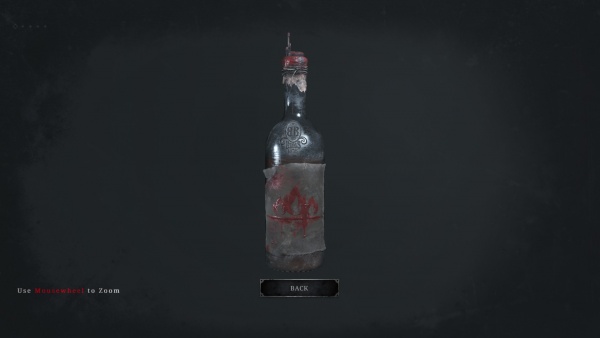
Frag Bomb
An apparently homemade explosive device, the "Frag Bomb" functions like a traditional fragmentation grenade. Its basic construction is reminiscent of stick grenades like the Model 24 Stielhandgranate. Compared to dynamite sticks, the Frag Bomb has a slightly larger damage radius and trades raw damage for additional "Rending" damage, which inflicts severe bleeding (and subsequent rapid health depletion) upon hunters caught in the blast radius, representing the lacerating effect of shrapnel.
Flash Bomb
The "Flash Bomb" is essentially a late 19th century take on flashbang grenade. A homemade device containing a mercury filling, the Flash Bomb detonates in a blinding flash of light, predictably disorienting any hunter caught in its blast radius.
Choke Bomb
The "Choke Bomb" is a gas grenade that releases a cloud of black smoke, which prevents any fires from being lit in its radius and extinguishes existing flames. Hunters caught in the smoke cloud will also cough heavily, potentially revealing their position.
Sticky Bomb
The "Sticky Bomb" is a single stick of dynamite enclosed within a barbed metal frame. As the name suggests, it will stick to most surfaces it makes contact with. The fuse time is eight seconds, double from the four second fuse time of dynamite, however.
Chaos Bomb
A "Chaos Bomb" is another homemade explosive, composed of firecrackers and various cartridges. When triggered, the Chaos Bomb cooks off these rounds to simulate gunshots. This device is useful for simulating a firefight to confuse or distract other hunters.
Poison Bomb
Yet another stick grenade-like offering, the Poison Bomb is apparently a medical device repurposed into delivering a cloud of poison gas upon impact with a surface.

